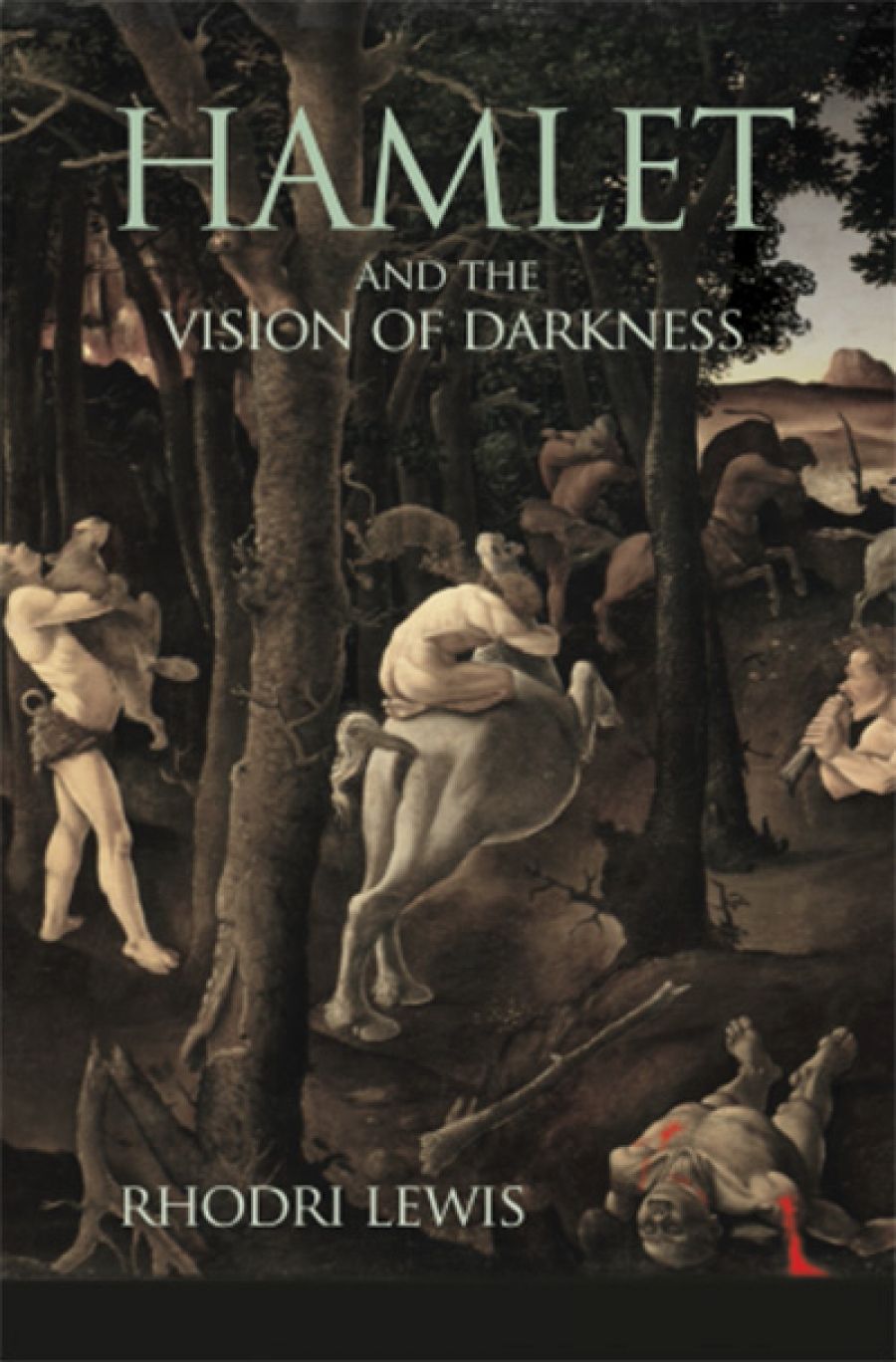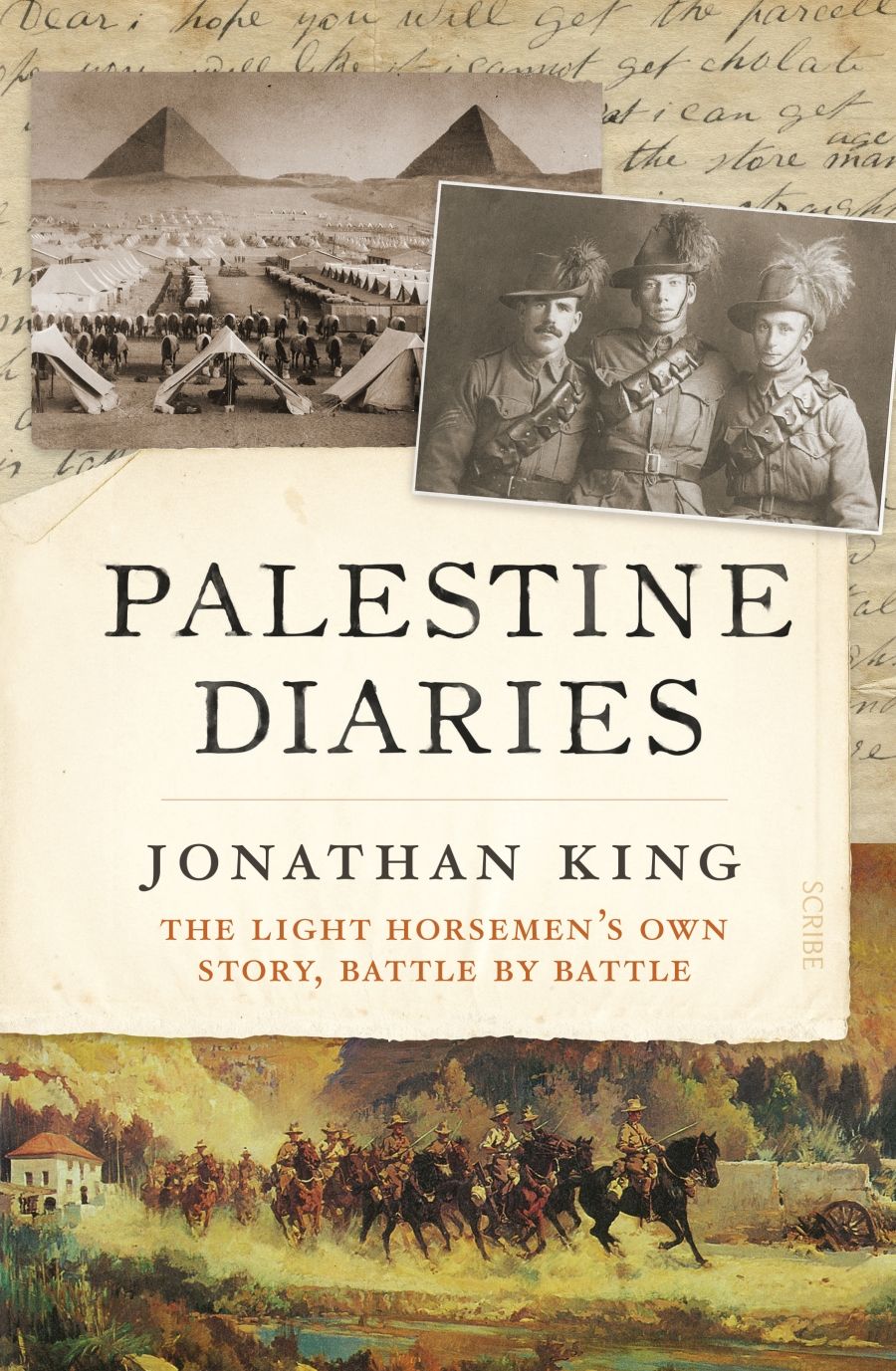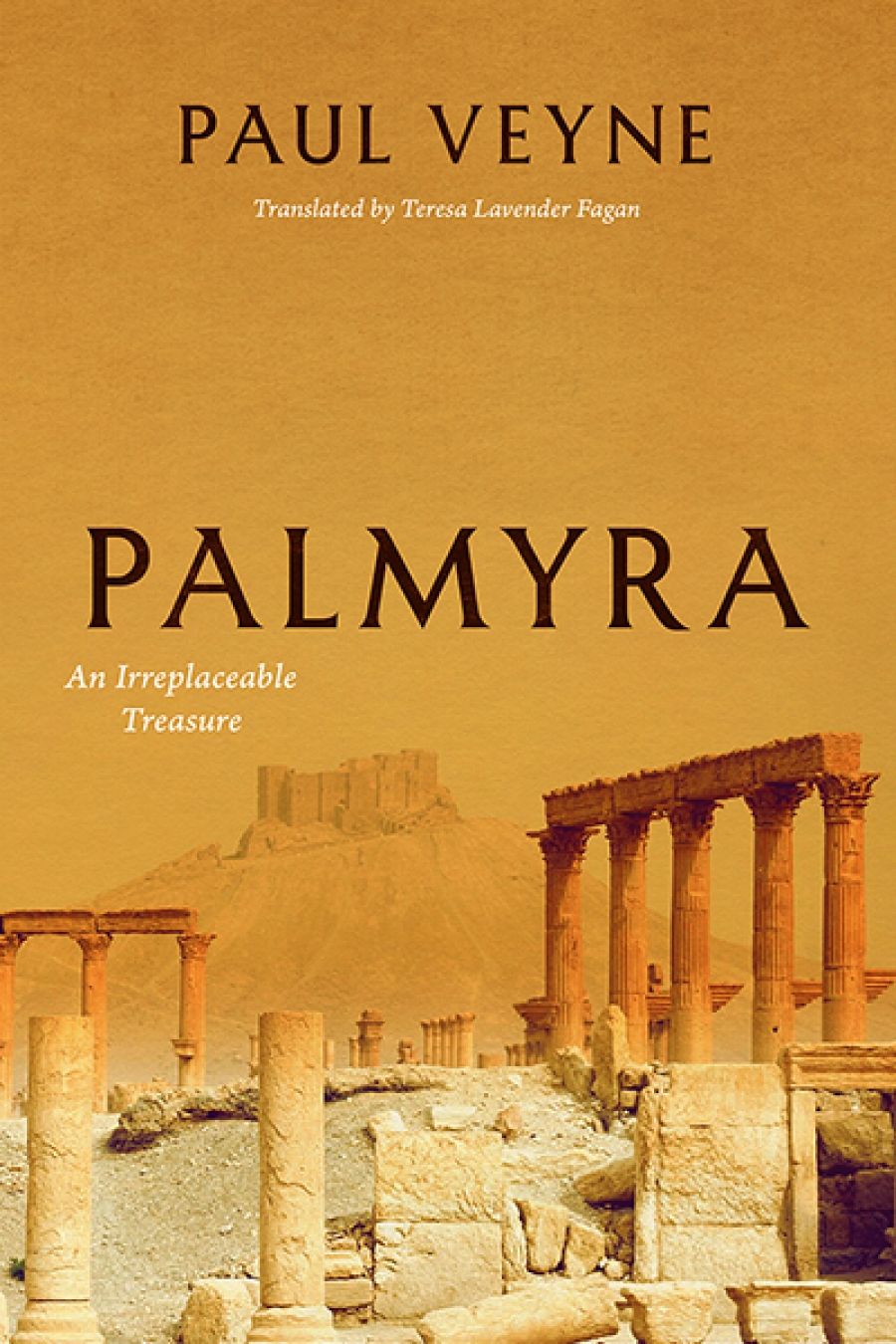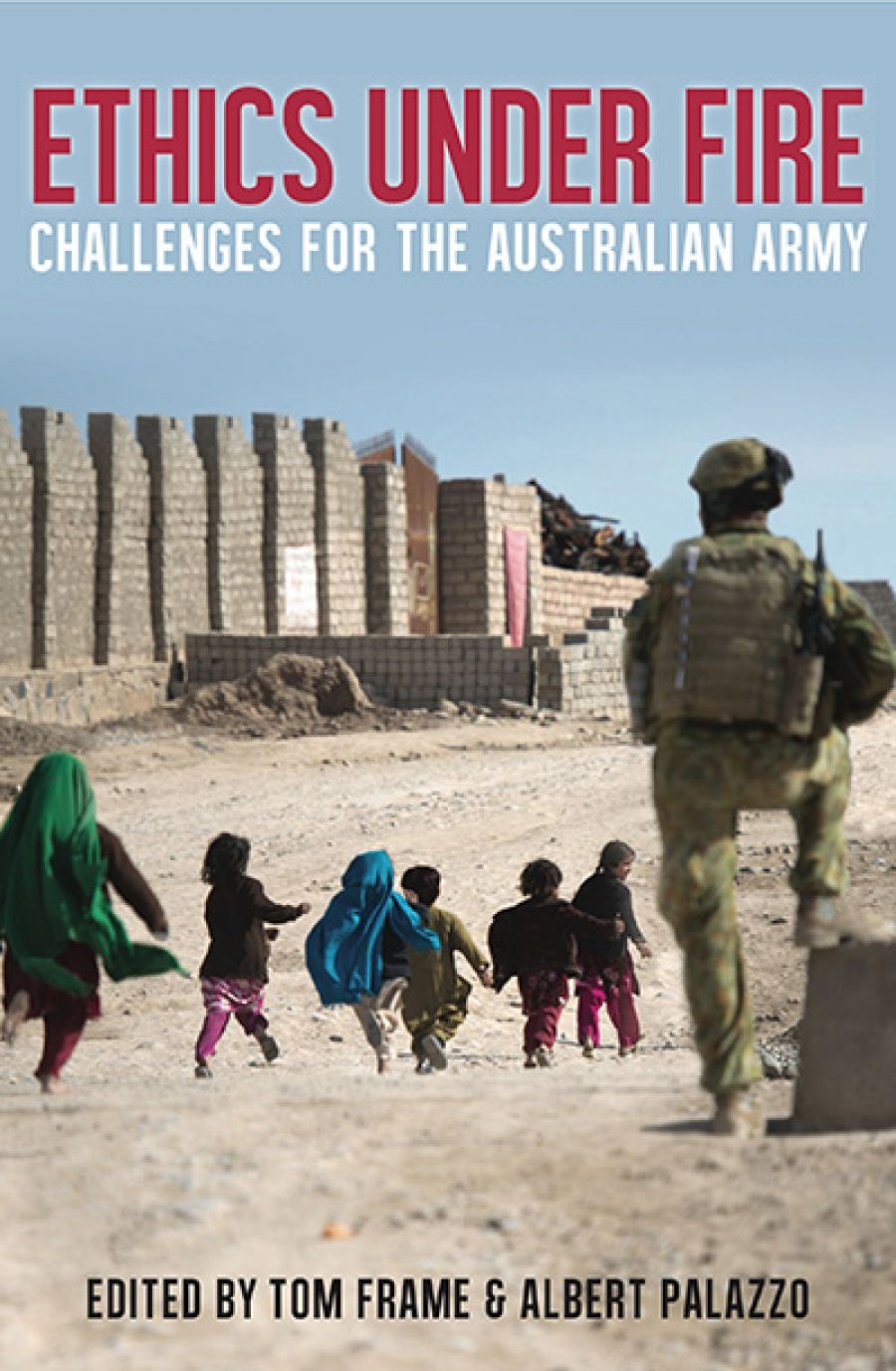101, Taipei
after the Mandopop song ‘Centrifugal Force’ (Yang Naiwen, 2016)
Happiness in wanting to say something but not saying it. I want to say
happiness in a way others cannot. You look up at my blue-green glass,
double-paned and glazed, and think we, even when someone
jumps, are never on the sane page. Of course, I look like
a huge magic wand that grows a sad rose. Yes, the rose
is dyed, at best. No, there is no rose. I, who have grieved
for the softness of streets replaced by purpose and shops, know
you will one day lie face down with your beautiful eyebrows.
Others think the body bag that does the job is plastic art,
but it is the zip, its reverence tossing us away from the implied
cause. Do you know the 21st century took our belongings inside?
If, as Mary Ruefle says, we are to be exact with the price
of a thing (be it a rooster plate, a kind rope, or, better, songs
about life not smooth as a tattoo) by adding 99 cents
to what it is already worth to make it feel more real,
you wonder what the steel of that one senseless floor
is for. For long, I have become where your soft spots
whisper We are metaphors or Take us, before, all winter long,
raw anticipation aches, sees nothing. An unbecoming. To some,
it is less sad. I am still the same set, same scene and torque
groping and tending the moon in Ourselves. Their selves.
To you, just another phallus? One that jokingly stands.
All seasons are equally good for waiting and missing out –
how you are here early, as if waiting for the world to come
down with its legs up, for the thing in your head to be heard.
It is hard to see a swaying hand in a crowd; everyone now crawls
towards everyone less sad-looking. Yes, the rain gets you
nothing. You are a living construct that mellows street lights.
Shouldn’t you be going home, where questions are decades old?
The ones you are expecting will not come. They are a list
by a kid to keep you soaked to the bone – the star
barista, the edgy clerk, the entrepreneur who burns
family pictures. People come with their cameras to frame
the circumference of their open despair. I close a door
behind you, but it is conservative to say only the natural world
matters. I am famous. I appear in maps. Come,
didn’t you say I speed up happiness with a city view?
Beneath me, a male world thrums with every strung kind.
Nicholas Wong
Nicholas Wong is the author of Crevasse (Kaya Press, 2015), winner of the Lambda Literary Award in Gay Poetry. He is also the recipient of the Hong Kong Young Artist Award in Literary Arts in 2017. Wong has contributed writing to the radio composition project ‘One of the Two Stories, Or Both’ at Manchester International Festival 2017, and the final exhibition of Robert H.N. Ho Family Foundation Chinese Art Initiative at Solomon R. Guggenheim Museum, which will open in May 2018. He is the Vice President of PEN Hong Kong, and teaches at the Education University of Hong Kong
Compass
'Follow the water.'
NASA
I
My mother lowered me into the water.
She put me on my back. Some instinct
held my neck rigid and my head up.
The photograph is lost. In the album
of my mind I see the panic in my fists.
I still feel the cold of the water around me.
II
He said we would play a game.
We all jumped. He held my hand, tight.
At the bottom, we counted. Bubbles
silvered to the surface. Then, I ran out
of air. I couldn’t wrench free. On his way
up, he kicked me. The water: so heavy.
III
In the afternoons it was my joy
to fill the small kettle and carry it
to my grandfather in the living room.
He’d put it on the hotplate, bring
the water to the boil. Tea leaves in the pot.
The scent of bamboo. The bitter brew.
IV
My father always said: where there is water,
there are Chinese people; where there are Chinese,
there are Hakka people. I have five phrases:
eat, sleep, shower, shit, I don’t understand.
To count out the numbers: we peel the yams.
Boil them, mash them, add flour and knead
into dough. The women in a line, moulding
the dimpled balls. I never understood the fuss.
Oil coats my lips, my teeth and my tongue.
V
I feel the loss of the bathtub most of all.
On winter mornings, I would wake and run
a hot bath. Unbearable, blistering heat.
Steam rising from water. Salt dissolving
instantly. The sublime immersion –
a return to the womb, or a coffin.
VI
At three o’clock in the morning
my grandmother decided to scrub
the bathroom floor. Water, traitor.
She slipped, cut her forehead open
on a pipe, then landed on her face.
Blood, and two black eyes.
This woman has fought all her life.
At night, she wrestles with her selves.
Sweat soaks her bedclothes.
VII
I never knew I tasted sweet.
Like honey from the rock –
Dry sermons droning overhead
while I silently read the Song
of Songs, Psalms, Proverbs.
Verses like the tides. My first
poetry, the ocean of my undoing.
At the bottom: a tin compass,
its needle wild and searching.
Eileen Chong
Eileen Chong is a Sydney poet who was born in Singapore of Chinese descent. She speaks English, Singlish, Mandarin, and Hokkien, but only writes in English. Chong took a Master of Letters at the University of Sydney and was a recipient of an Australian Postgraduate Award for a Doctorate in Creative Arts at Western Sydney University. She eventually left her academic studies to write poetry full-time. Her poetry collections are Burning Rice (2012), Peony (2014), and Painting Red Orchids (2016), all from Pitt Street Poetry.
The Abstract Blue Background
Hans Holbein the Younger, England, c.1526
A shade greener than Kingfisher (that blue
is not a pigment but a structure, a transparent material
combing the loved
known wavelengths). This is mineral azurite.
Copper resinate, lead white, lampblack, Cologne earth and vermilion:
A Lady with a Squirrel and a Starling.
Anne Lovell most likely; with her three-squirrel escutcheon and a home in
East Harling, a native pun or a foreign error that adhered,
mutually charming. Either way,
a starling’s barely heard
in the mind’s sub-blue afterward.
Squirrel and Starling were painted when Lady was gone
(standing slowing shaking her layers to make the stiff outer stand straight).
See the held squirrel afloat in space, forever now less squirrel
more Object (Paris 1936;
fur-covered teacup, saucer and spoon);
the Lady’s pet is an afterthought on a fine-wrought chain.
Blue’s pet is that sky
dragged indoors through the keyhole and made
to sit still as abstract, in a green pose it cannot hold.
The squirrel’s tail is between the Lady’s breasts
(by a thousand almost-touches) pointing upwards to the opening
of the ermine cap, disregarding
the face in its opening
for pure opening.
The blue disregards the subject too and all procedure.
She’s a column of time with a little sway (the first layer):
a thick sun-frayed cord of a nervous system flapping:
a flesh tone that is lead white shot through
with vermilion drawn fresh from a rock vein (the last layer surely):
a roused un-blue (the mouth-to-mouth was purely
thaumaturgical, there was
no touching, she is no beauty):
a completed madonna, holding
something else’s child. (Well it’s done now.)
If it is Anne Lovell she is one year a mother; that is, fleshly returned
as woman in fine sewn couplings of mammal skin, in black bodice
that is collected soot. Each candle flame’s
thumbprint, taken, scraped, all the nights
it took Holbein.
The blue is above feeling moved,
above texture, above velvet and ermine and linen, the dyeable the dead;
above the compact of cap, shawl and bodice
as christ was always already above the concerns of his mother
(harmonious as an upended
pietà pyramid.)
The blue, inspired, kicks its own can over.
If Holbein was no longer sure, still he hurried off for the court
of a fallible king, less perilous
than facing
an objective blue.
Blue’s explanation: an inner prompting got palpable,
got out of hand, got too enthralling, was executed perfectly
to be more alive, then had no option left
but ascension.
The scientific age cannot explain a cult of beauty
any further with its infrared. Plain sight is hiding in blue.
LK Holt
LK Holt lives in Melbourne, where she was born in 1982. Her first collection of poems, Man Wolf Man, won the 2009 Kenneth Slessor Prize in the NSW Premier’s Awards. Patience, Mutiny shared the 2011 Grace Leven Prize for Poetry. Her most recent collection Keeps was longlisted for the 2015 Australian Literature Society Gold Medal. Her forthcoming collection, System Garden, will be published by Vagabond Press later this year.
Decoding Paul Klee’s Mit Grünen Strümpfen (With Green Stockings) 1939
Her green stockinged legs are the conduit
their electric energy like tree sap
pulsing with live yearning that
powers upwards, upwards and through
her body’s little girl trunk
encased in its wide, fine line pinafore
daubed in soft pink and saxe blue splotches.
Higher and higher the strong current surges
into her tuning fork arms charged in yellow
exalting the big green sun daubed also in blue
and her long russet hair falls to one side of her head
while her round ink smudged eyes fix her goal
as explicitly as green stockinged legs hold her firm
and her little girl voice announces ‘I want it.’
Katherine Healy
Katherine Healy is a writer living in the Adelaide Hills. She has worked in education, community health promotion, and counselling. Katherine has published creative non-fiction, short fiction, and poetry. She gained her Master of Letters in Creative Writing from Central Queensland University and credits the rural city of Rockhampton for reawakening her poetic impulse. Katherine is a member of Writers’ SA. She has a poetry collection and a novel as a works-in-progress.
breather
1.
The only thing left of god by then was the key to a hotel room. Is it worth saying the room
was turquoise & smelt like us coming in an arthouse film, a space for everything bad about
deconstruction & lamplit polyester unfringed with irony. All I wanted was your fingers inside
me like ten wet disciples.
*
Brick room with skin diptych. I could catalogue everything squalid. Chintzy pelt of the
superking. Diaspora of insects round the bulb like core samples. Cheesy pallor of formica
coffee tables, nested. Drapes avocado as an old bruise. Oh let us tour the cutlery drawer in all
its nickel ammunition. Smell of your torso pay-by-the-hour along mine.
*
‘I just had the weirdest five minute dream. You were giving me a blowjob in an asylum.’
*
I meant for this to happen & happen. Adjacent to your tongue tip there’s zero I care about.
Indigo fishhooked the carpet’s sky blue crime & no soliloquy of guilt would stop us getting
the wet skin we’d paid for. Everyone we owed was out of range. Under us a pub the colour of
a cellblock. Easy. Just slip off the lace of thinking twice.
2.
Call your wife, can you fill up the diesel, she needs it for ballet practice tonight. Call your
wife, the goddamn taps in the ensuite have jammed again, can you just for once. Call your
wife, she is solo in the ritualised kitchen where the lights have blown out. Call your wife,
leave a message at the sob. Call your wife, she is learning the hard way. Call your wife, the
histology is back. Call your wife, her lipstick is audible. Call your wife, she’s on her third
bottle & the kids are starting to look like stars. Call your wife, she remembers the colour of
the wallpaper in neonatal. Call your wife, she is talking to you with her head tipped back so
you don’t hear the asphyxia. Call your wife, she has access to the archives. Call your wife,
because there will be a tomorrow. Call your wife, she has a thing for Sinatra. Call your wife,
to hear her mohair voice. Call your wife, your account is in the red. Call your wife, she is
right where you left her. Call your wife, in the living room simmering, she is the house set
alight said aloud. Oops, we encountered a problem, try again in 3,2,1 to. Call your wife, she
will not ask again, she will try to sound futile, this is love not surveillance, she is holding an
hourglass, she is hewn from decent clothes, while I put you in my mouth, she is stranded in
the blueprints, it’ll be a quick fix, the kids need picking up from the smoke. Call your wife,
she will speak at your funeral. Fuck me hard, then call your wife.
Tracey Slaughter
Tracey Slaughter is a poet and short story writer from Cambridge, New Zealand. Her work has received numerous awards, including the international Bridport Prize (2014), shortlistings for the Manchester Prize in both Poetry (2014) and Fiction (2015), and two Katherine Mansfield Awards. Her latest work, the short story collection deleted scenes for lovers (Victoria University Press) was published to critical acclaim in 2016, and was longlisted for the Ockham NZ Book Awards. She is currently putting the finishing touches to a poetry collection entitled ‘conventional weapons’. She teaches at the University of Waikato, where she edits the literary journal Mayhem.


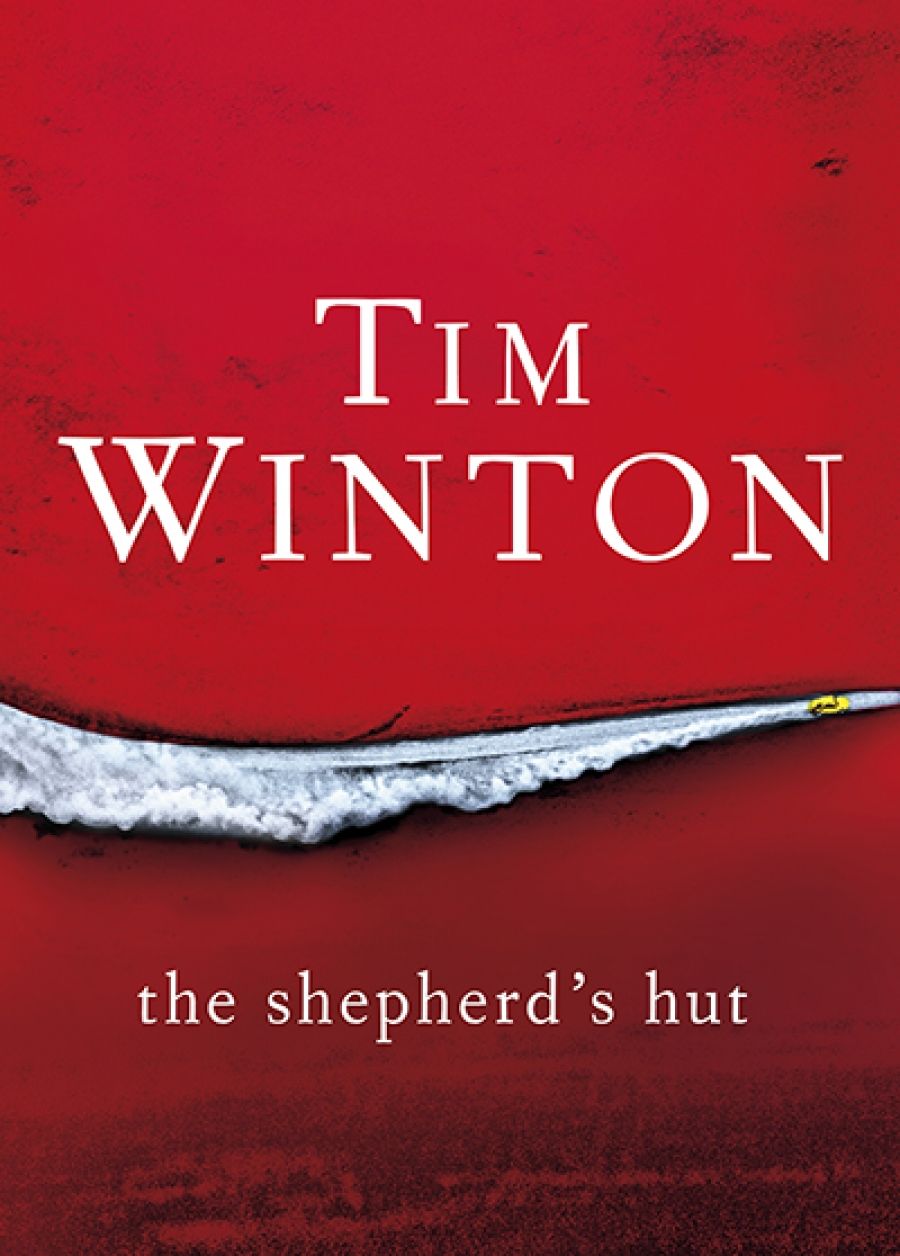
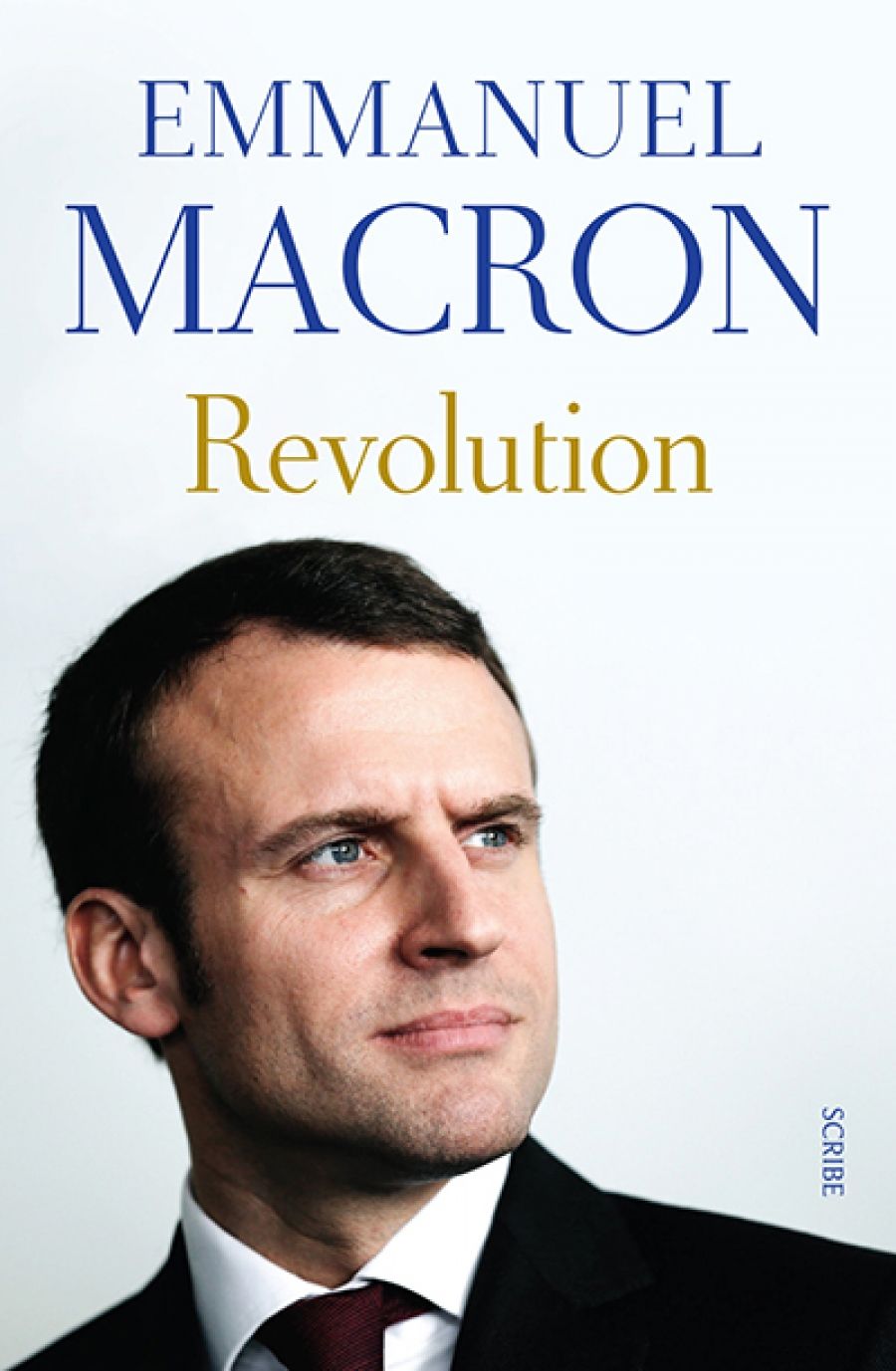
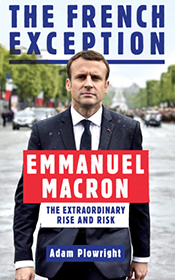
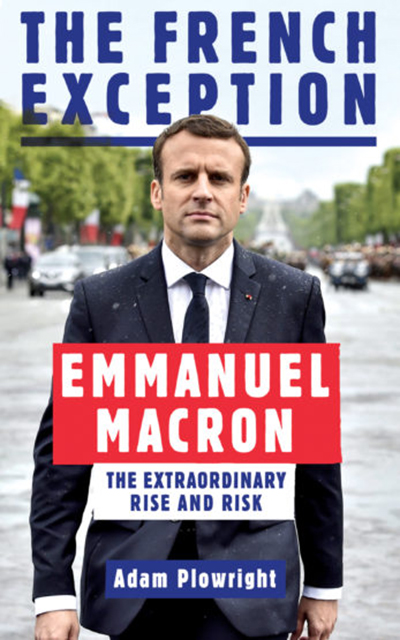



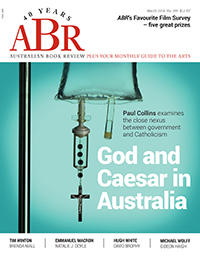
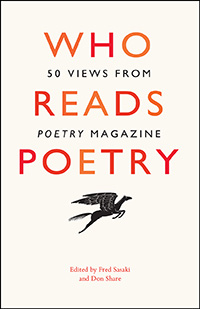 Who Reads Poetry (University of Chicago Press/Footprint, $49.99 hb), edited by Fred Sasaki and Don Share (the latter is also Editor of Poetry magazine), features writers such as Roxane Gay, who says gallantly: ‘Even when I am confounded by a poem, it changes my world in some way.’ Christopher Hitchens was an inveterate memoriser of poetry: swathes of Auden, Owen, and the Bible. Predictably, no one writes better than Alex Ross, music critic of The New Yorker. Wallace Stevens he considers ‘the most innately musical of poets’. Ross writes: ‘I’ve long believed that I write what I read, and Stevens is the magic well from which I draw. He teaches the implacable power of the iambic meter, the heft of monosyllables, the democratic magic of the English tongue.’
Who Reads Poetry (University of Chicago Press/Footprint, $49.99 hb), edited by Fred Sasaki and Don Share (the latter is also Editor of Poetry magazine), features writers such as Roxane Gay, who says gallantly: ‘Even when I am confounded by a poem, it changes my world in some way.’ Christopher Hitchens was an inveterate memoriser of poetry: swathes of Auden, Owen, and the Bible. Predictably, no one writes better than Alex Ross, music critic of The New Yorker. Wallace Stevens he considers ‘the most innately musical of poets’. Ross writes: ‘I’ve long believed that I write what I read, and Stevens is the magic well from which I draw. He teaches the implacable power of the iambic meter, the heft of monosyllables, the democratic magic of the English tongue.’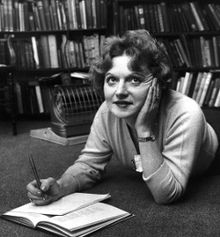
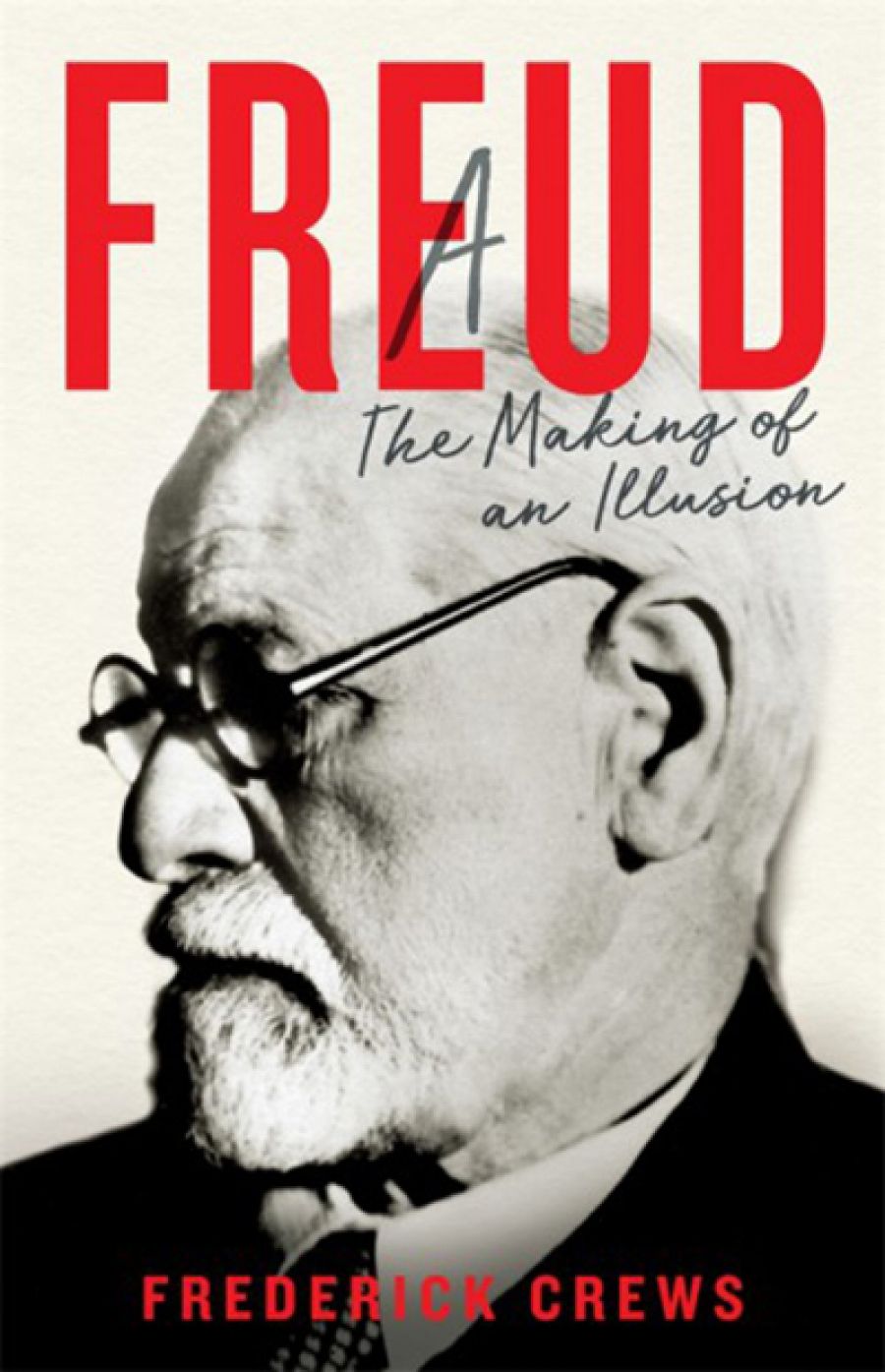
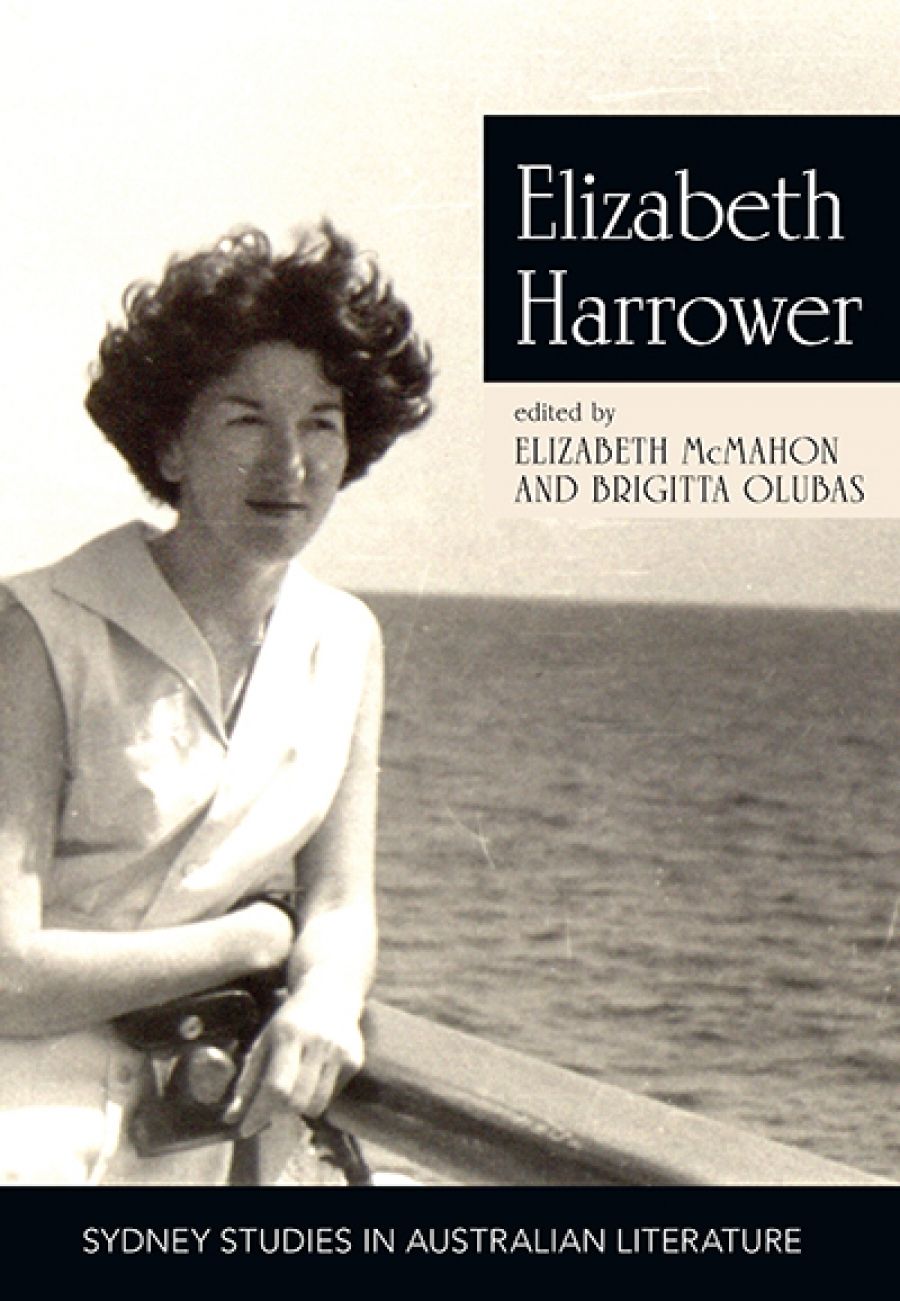
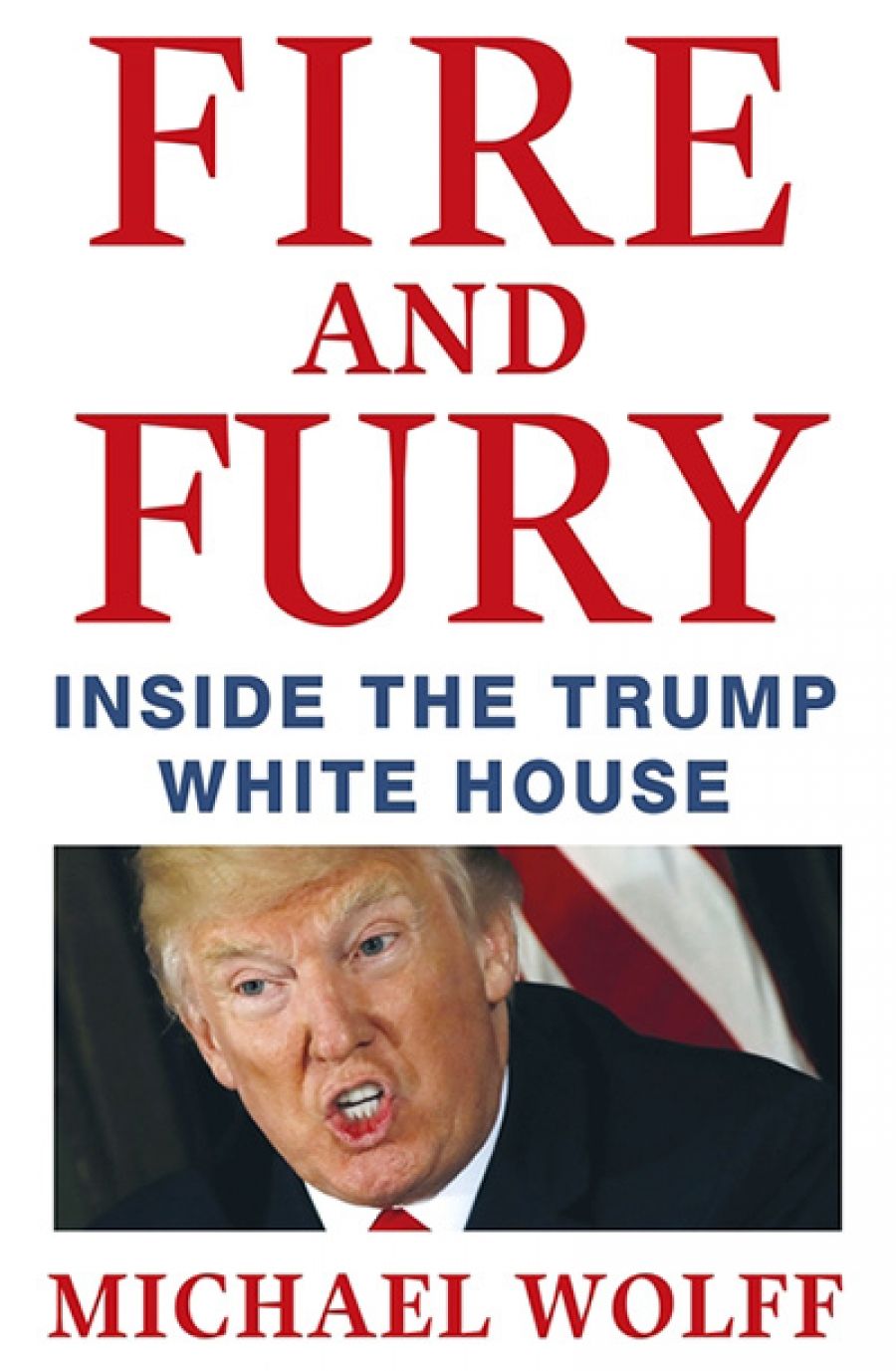
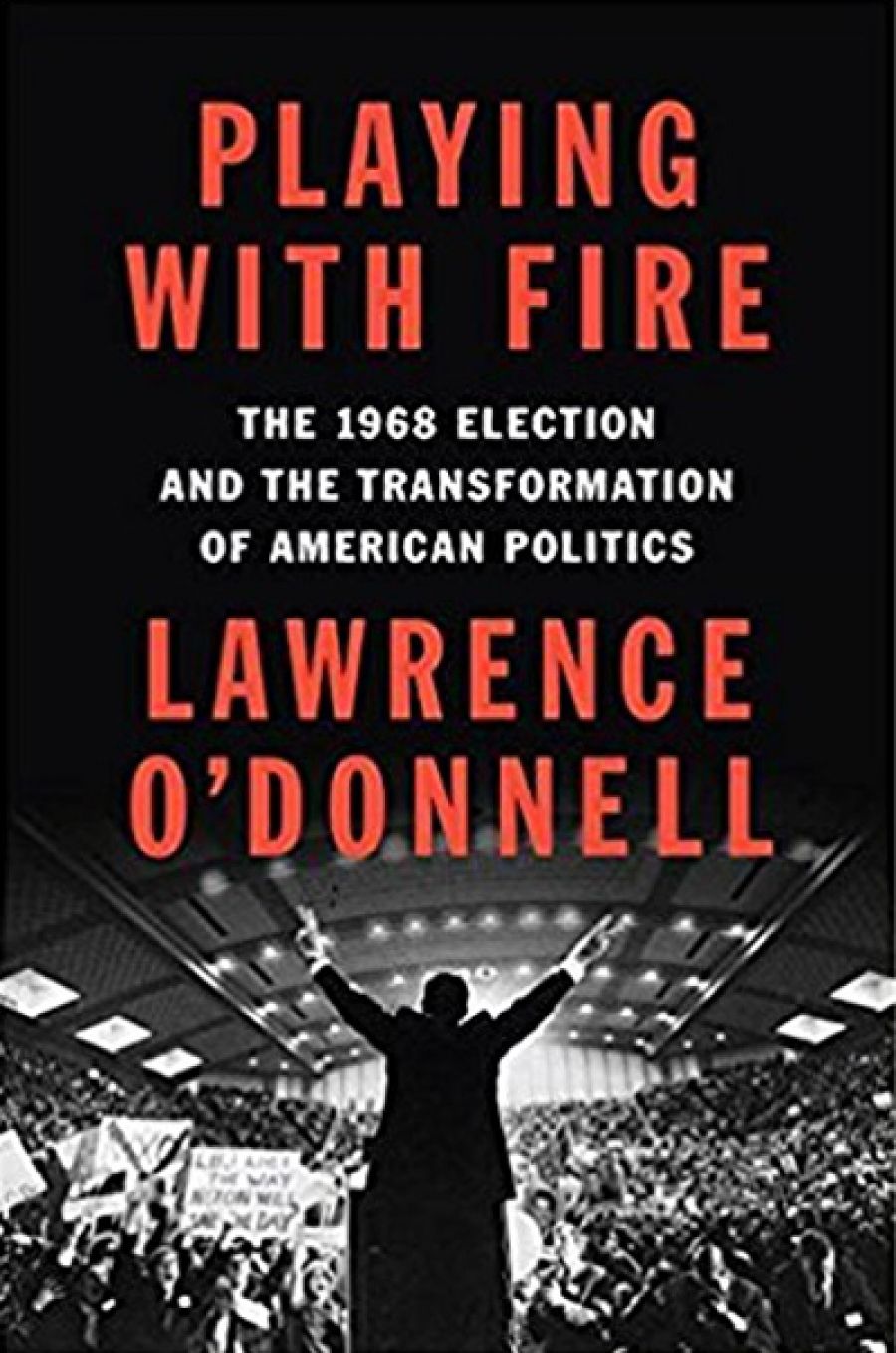
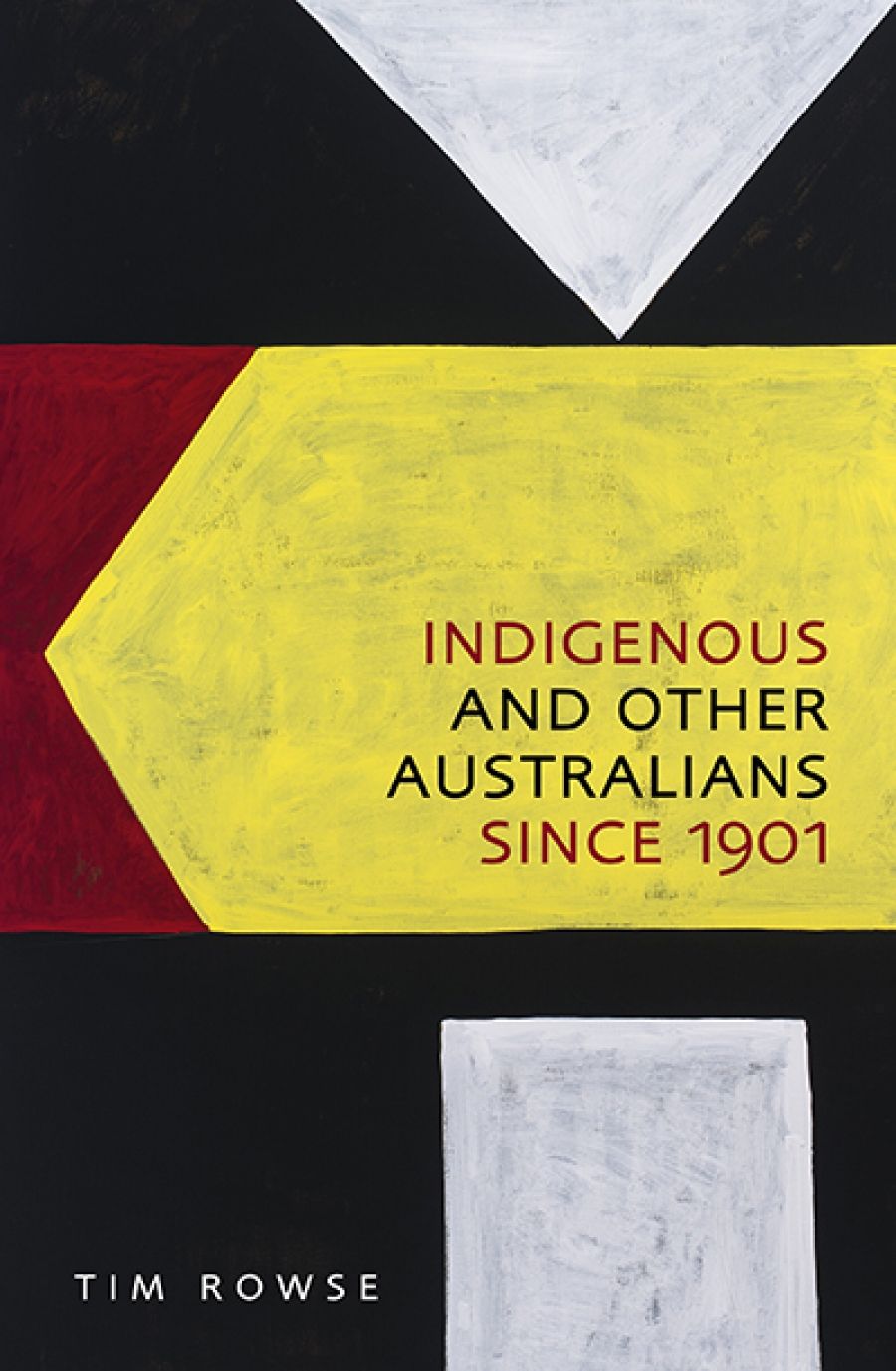

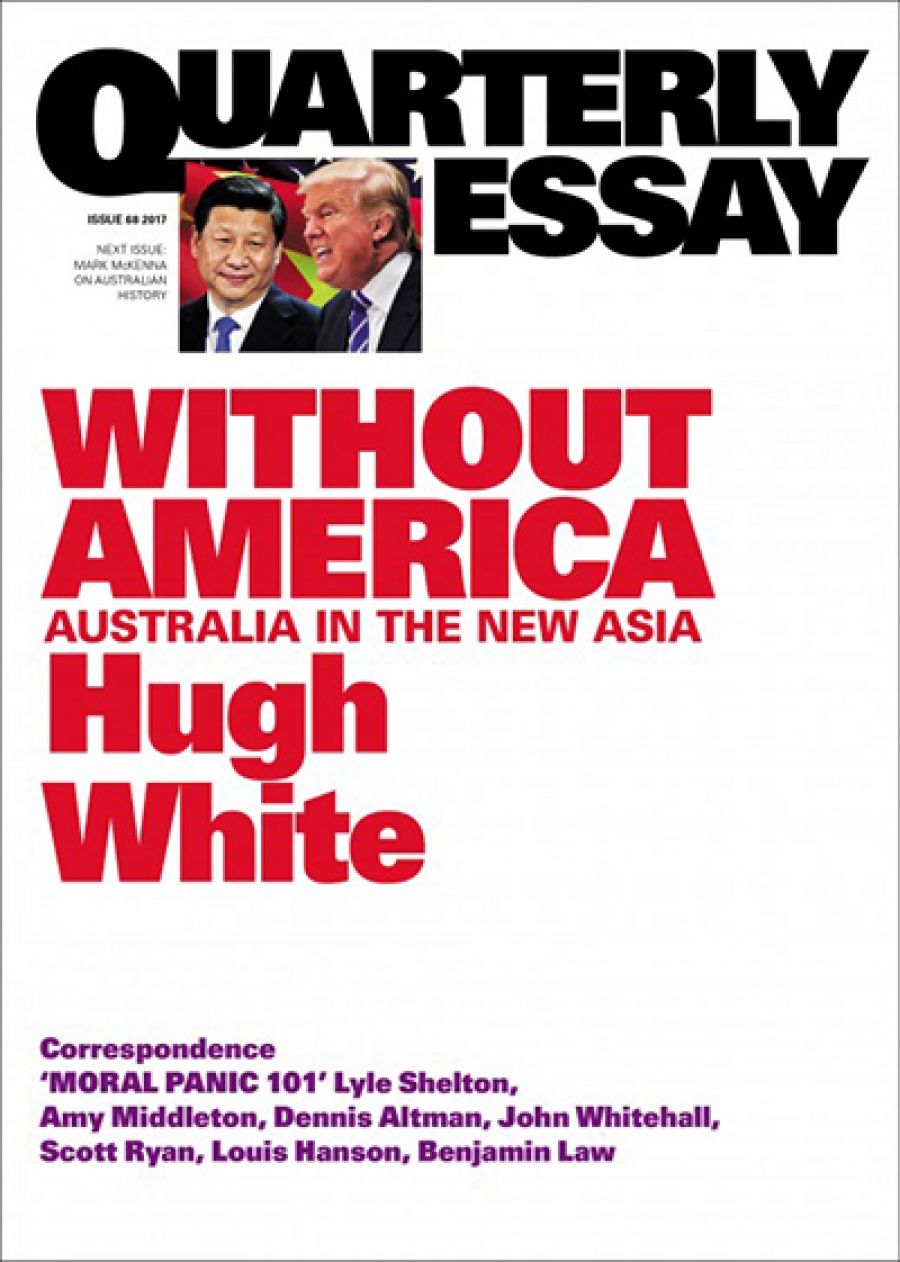
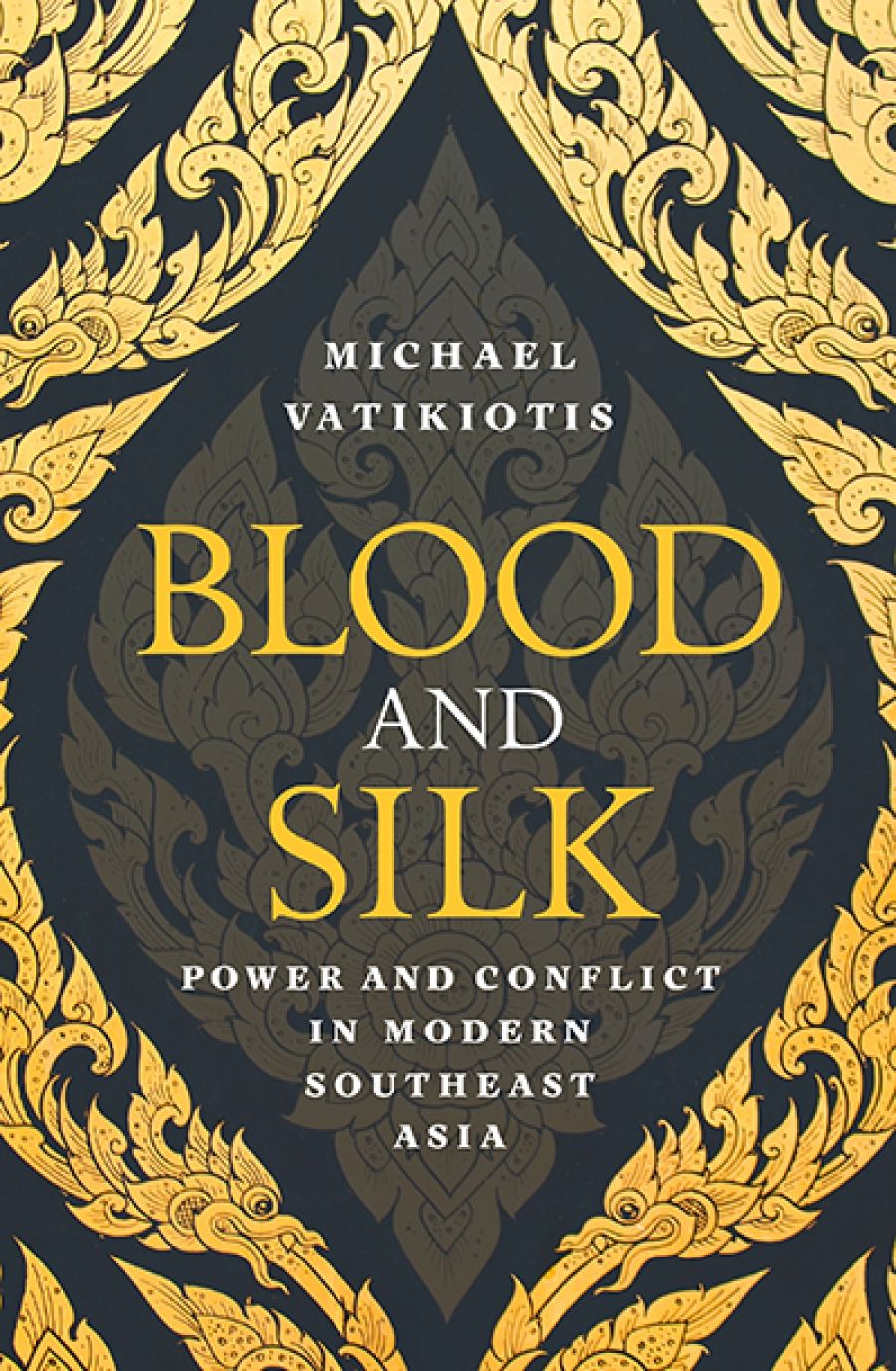
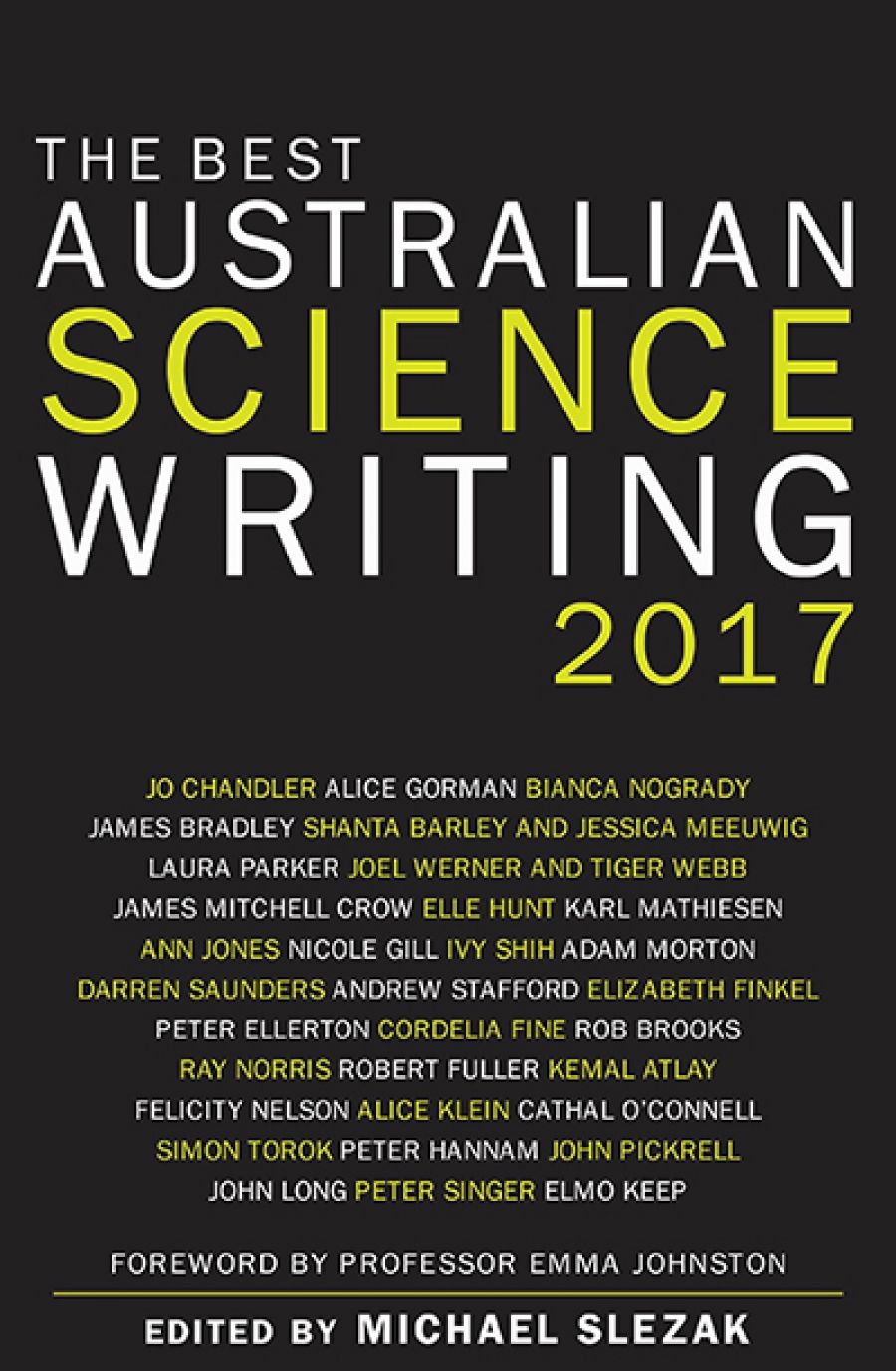
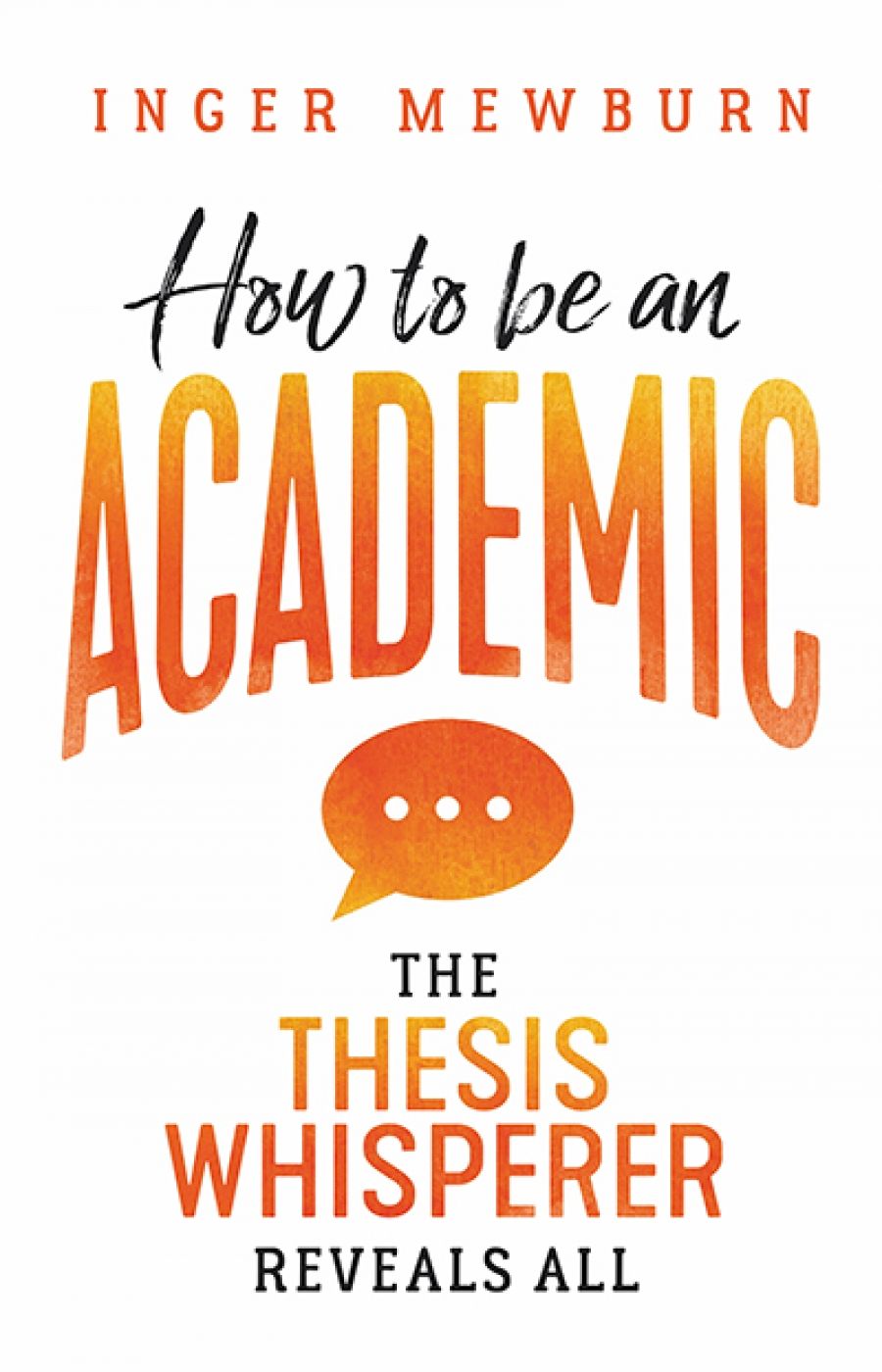
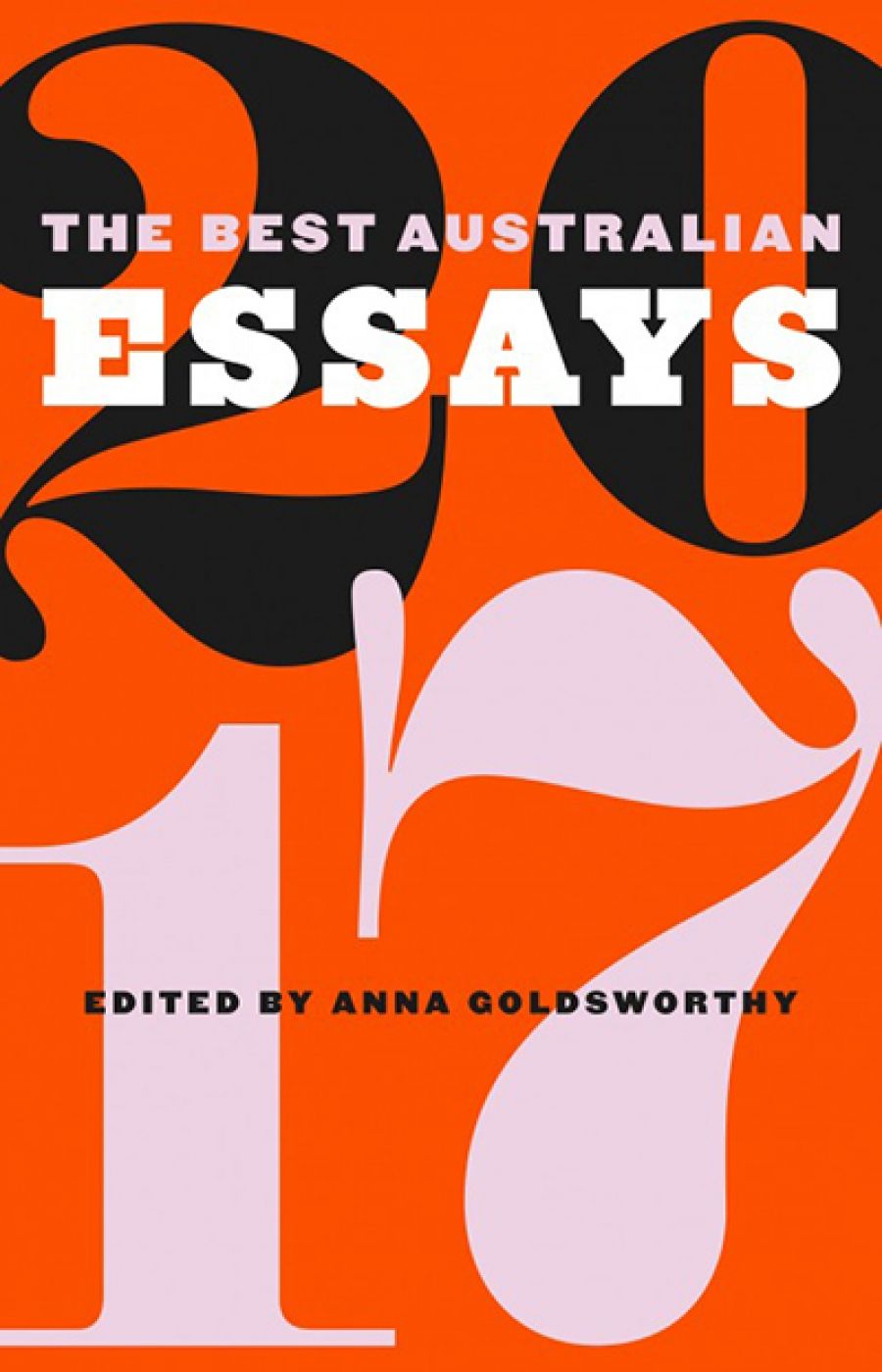
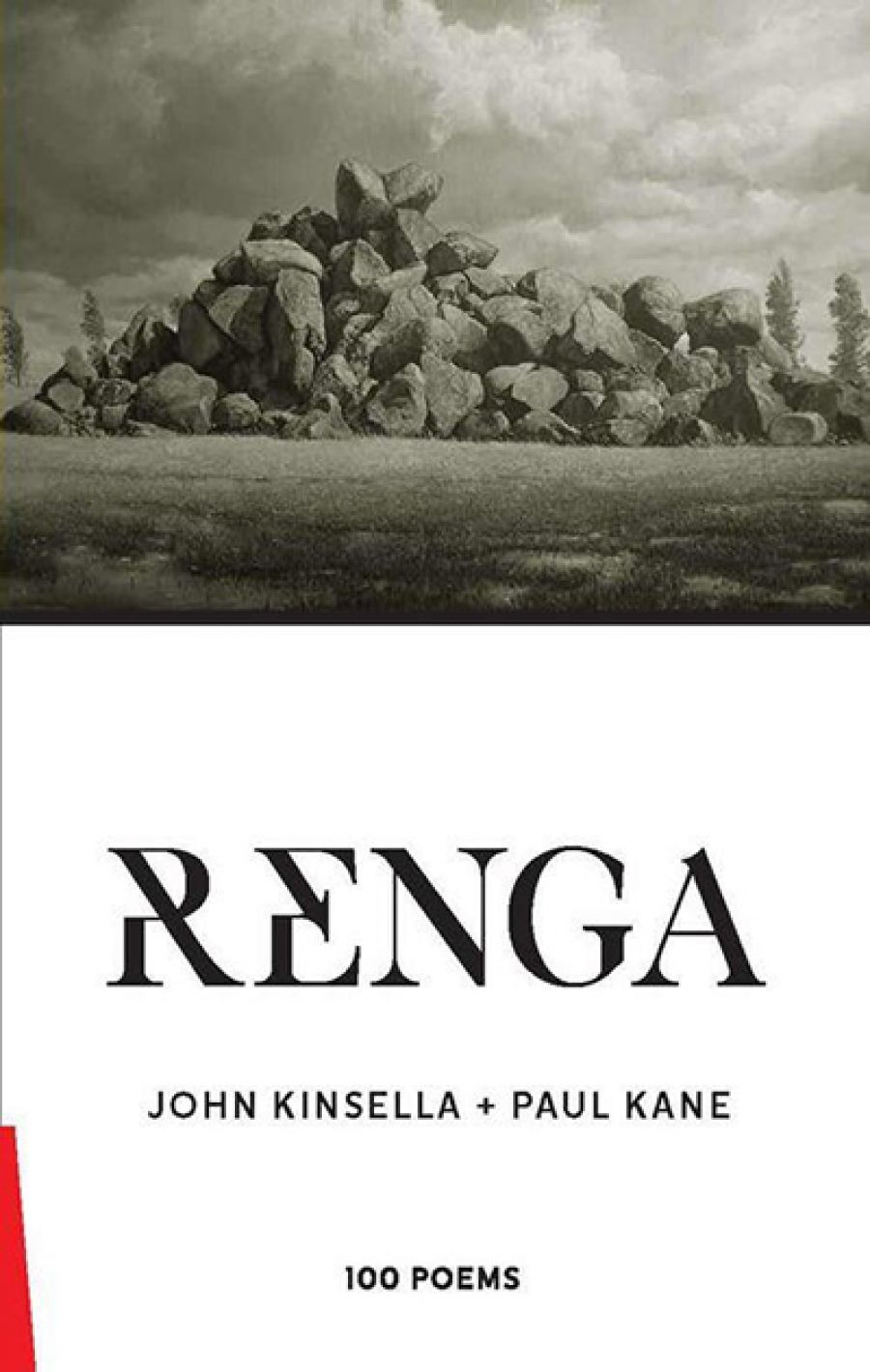
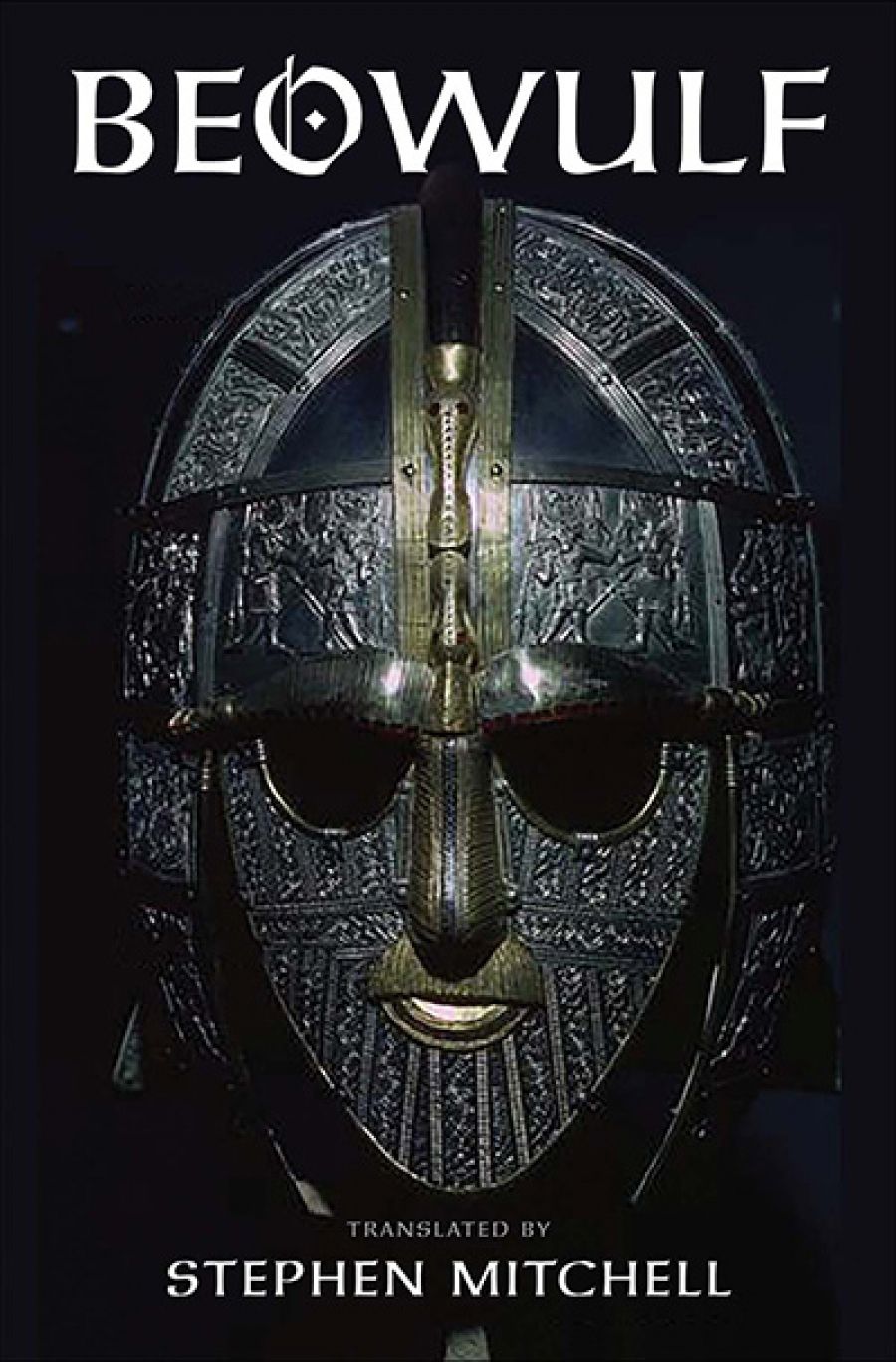
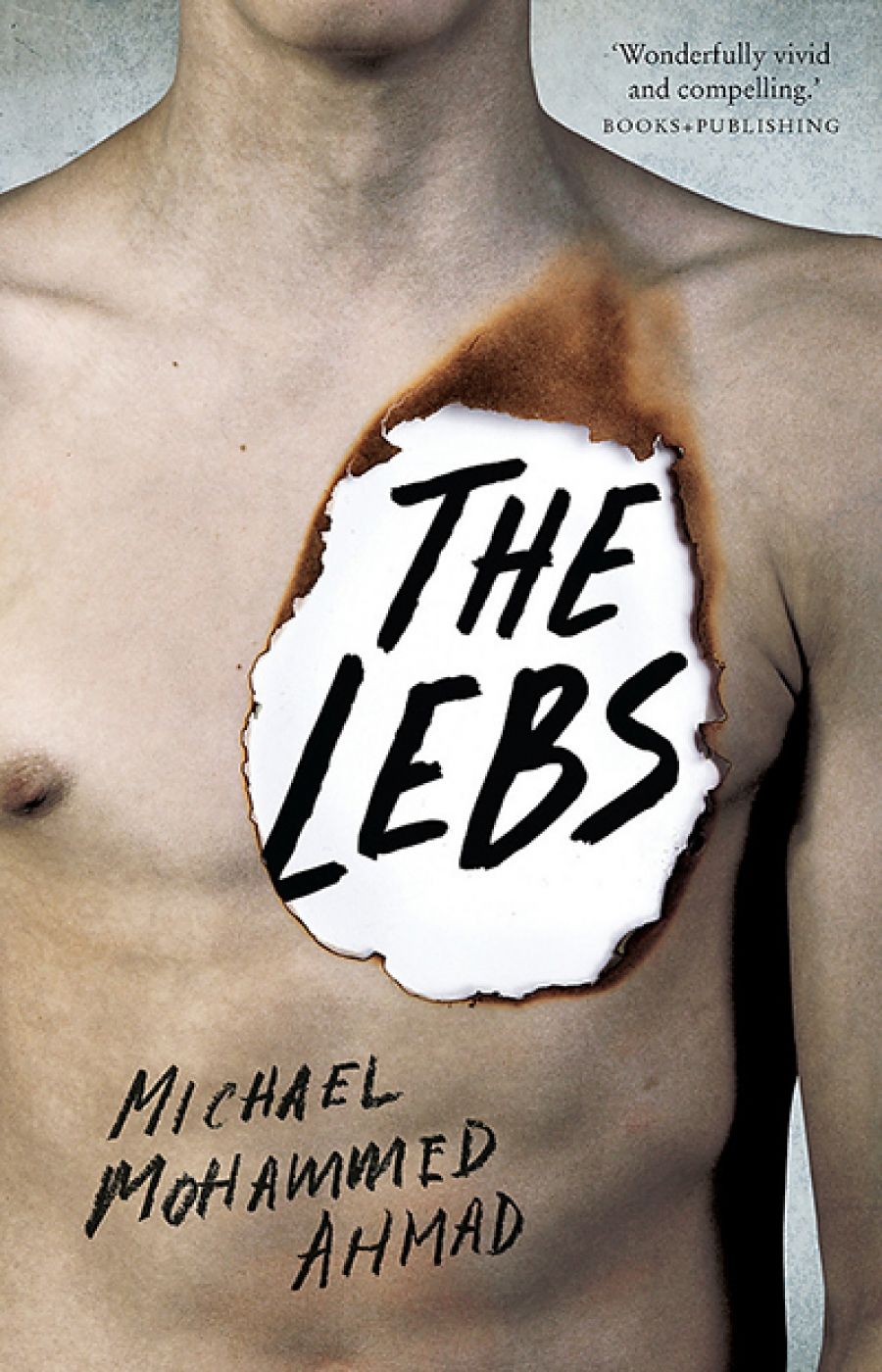
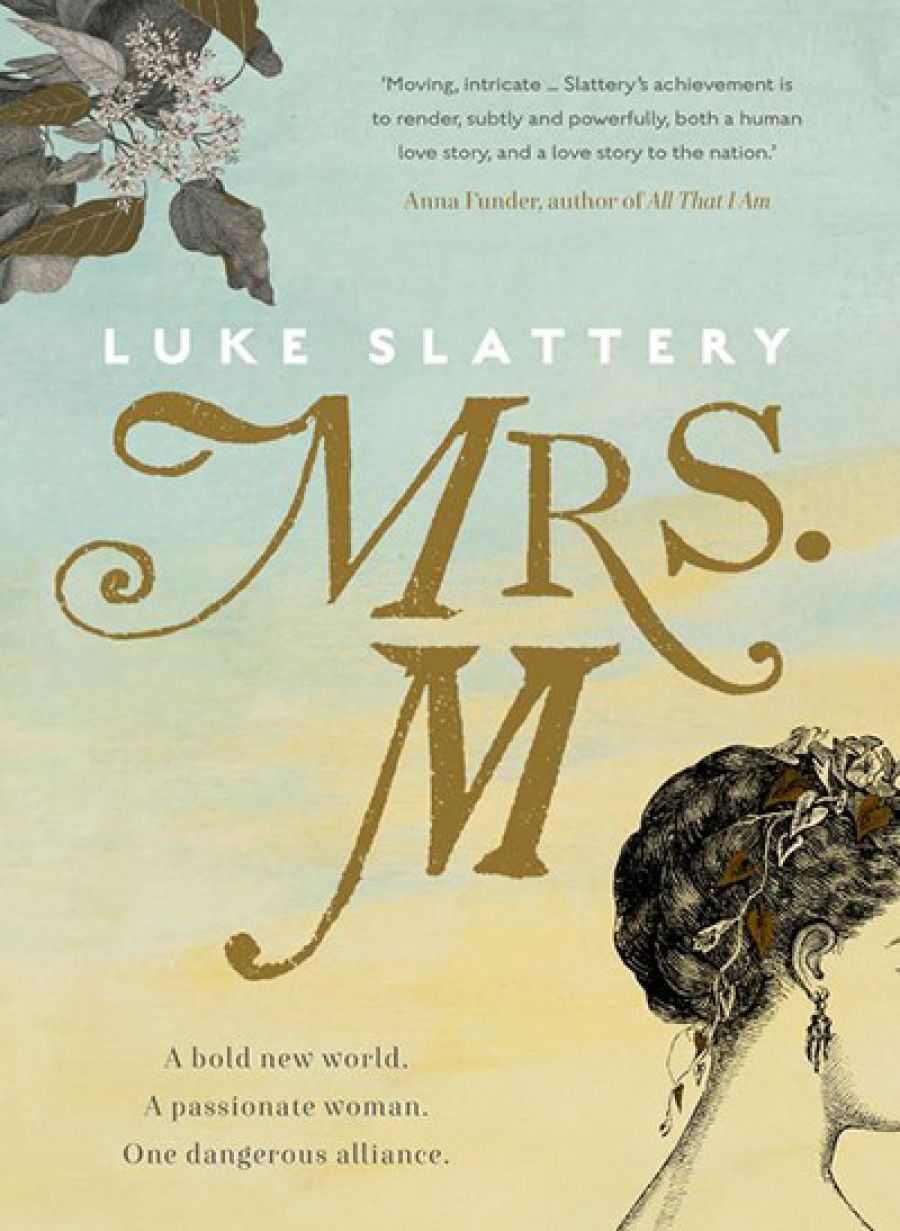
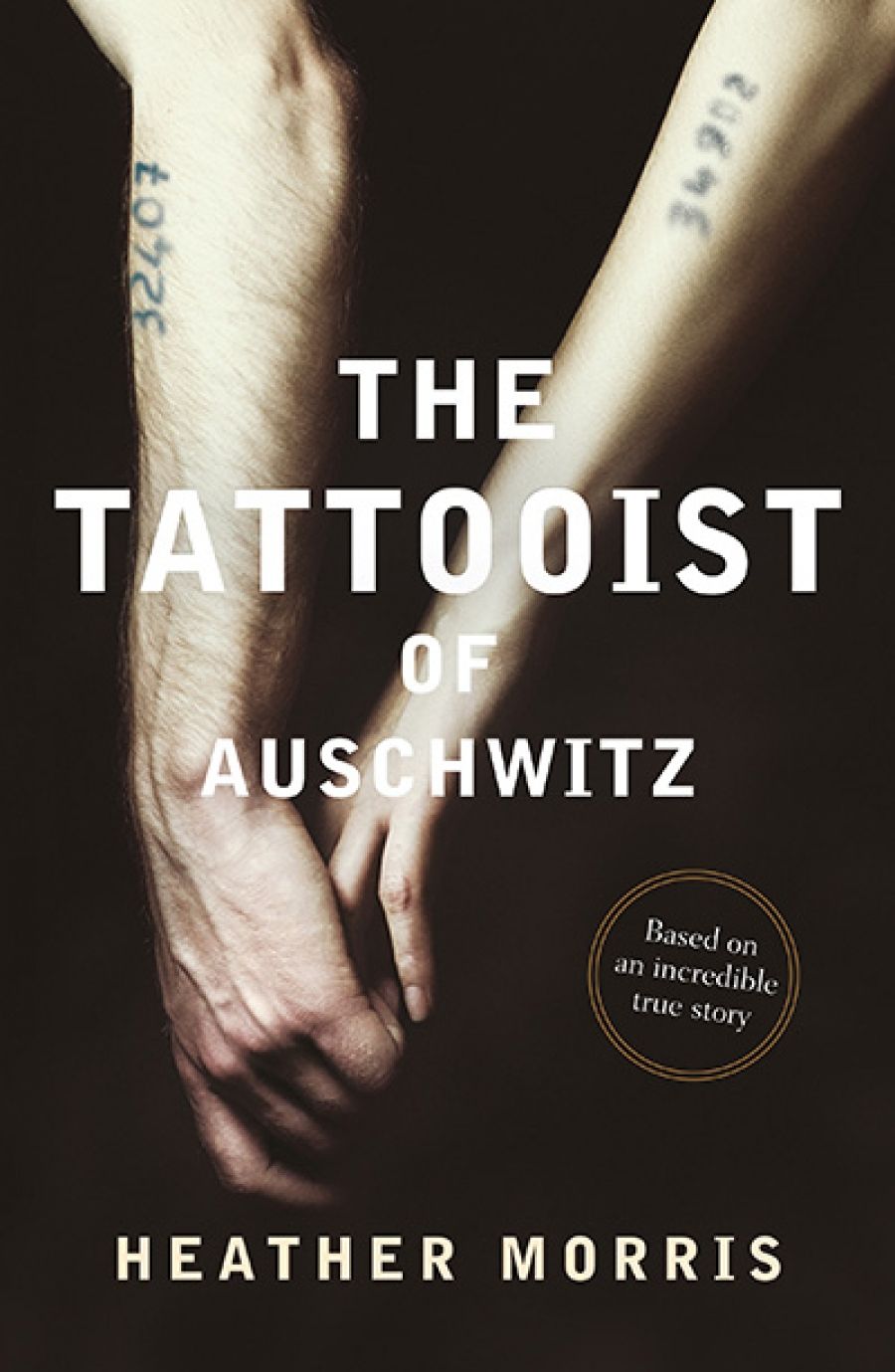
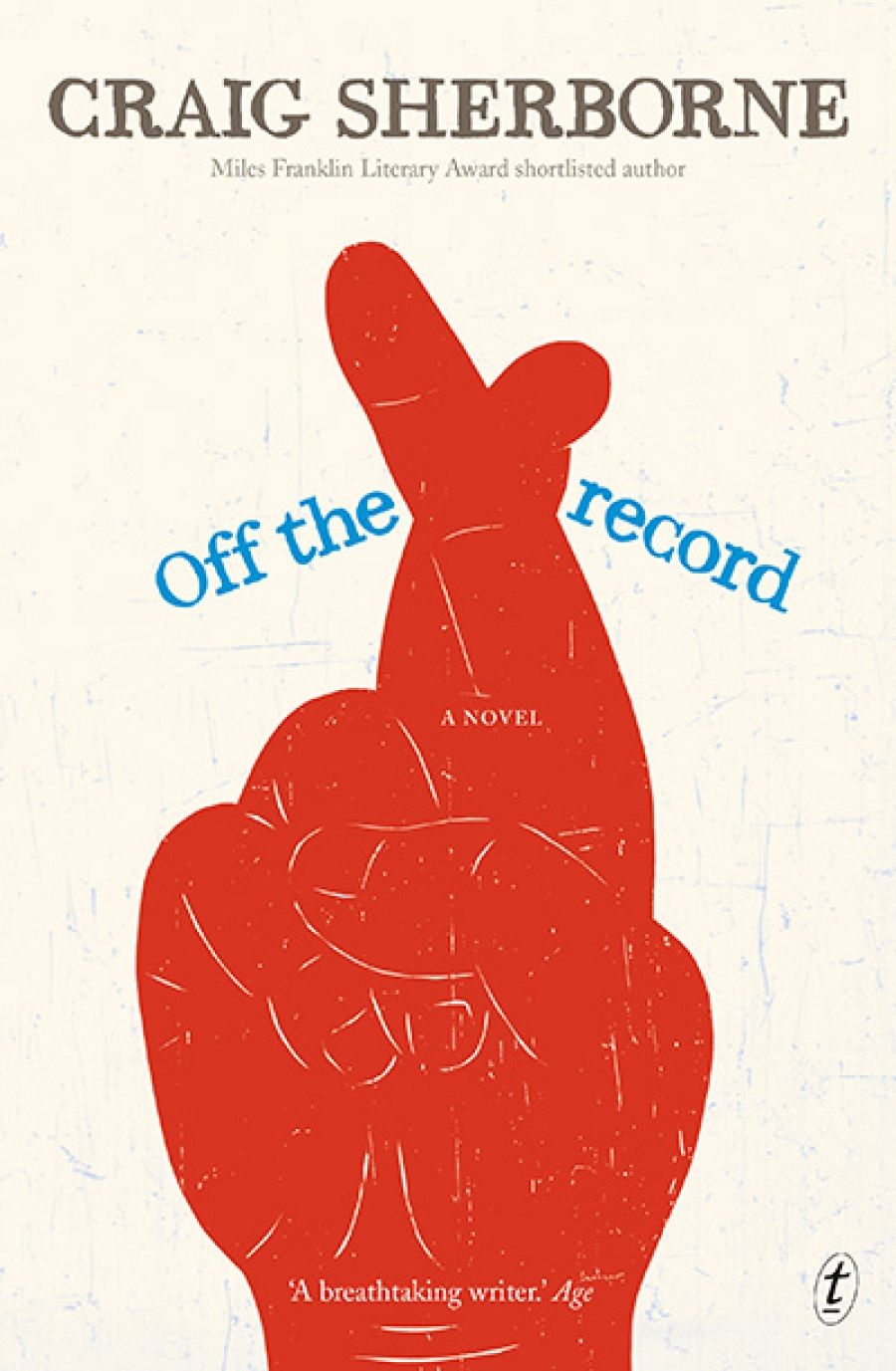
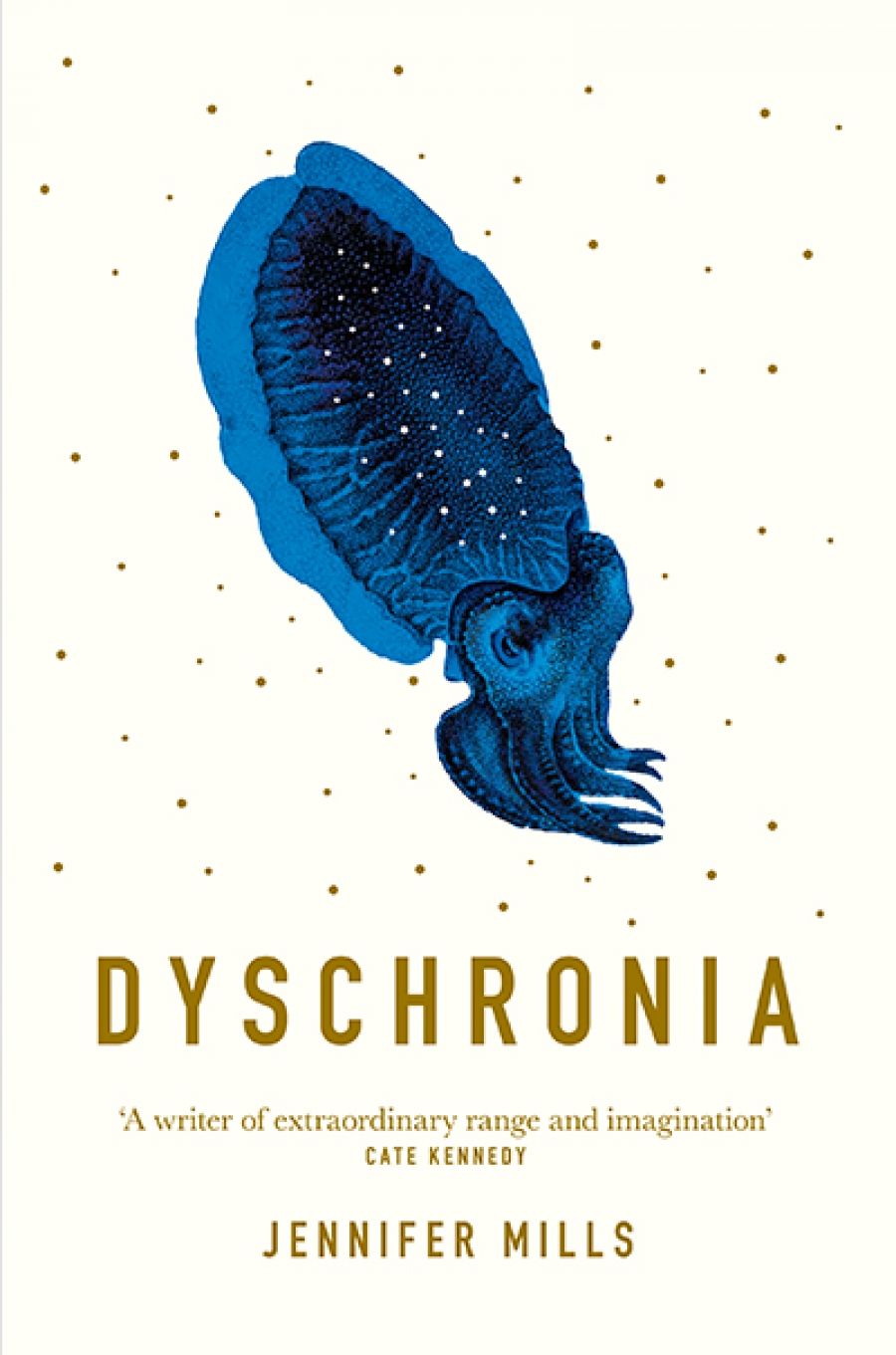
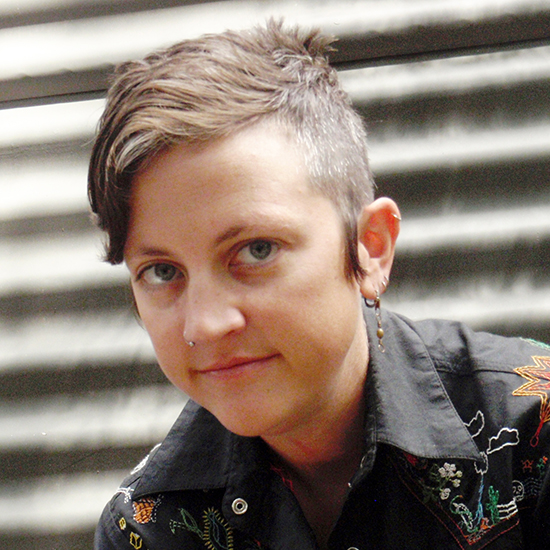
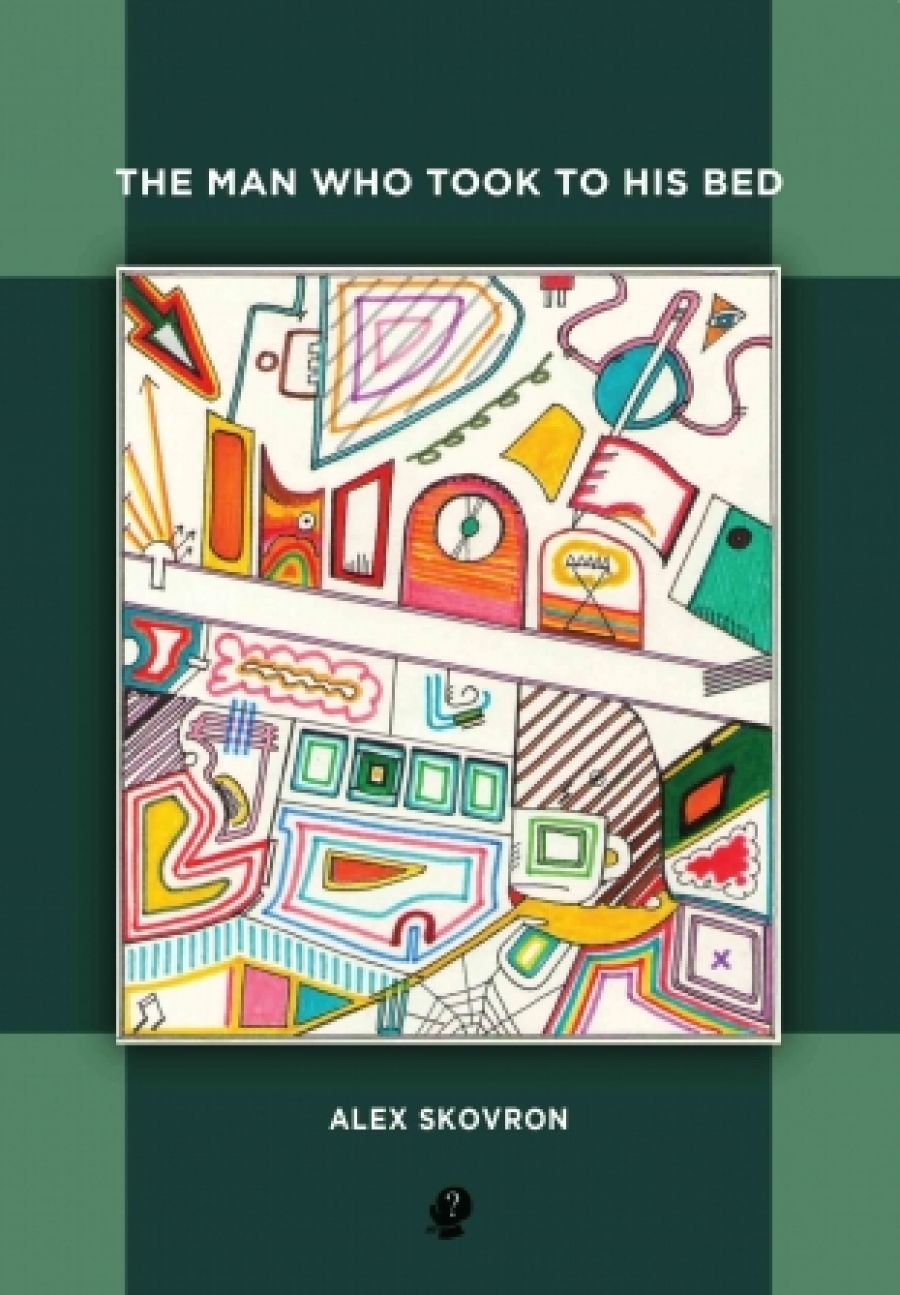
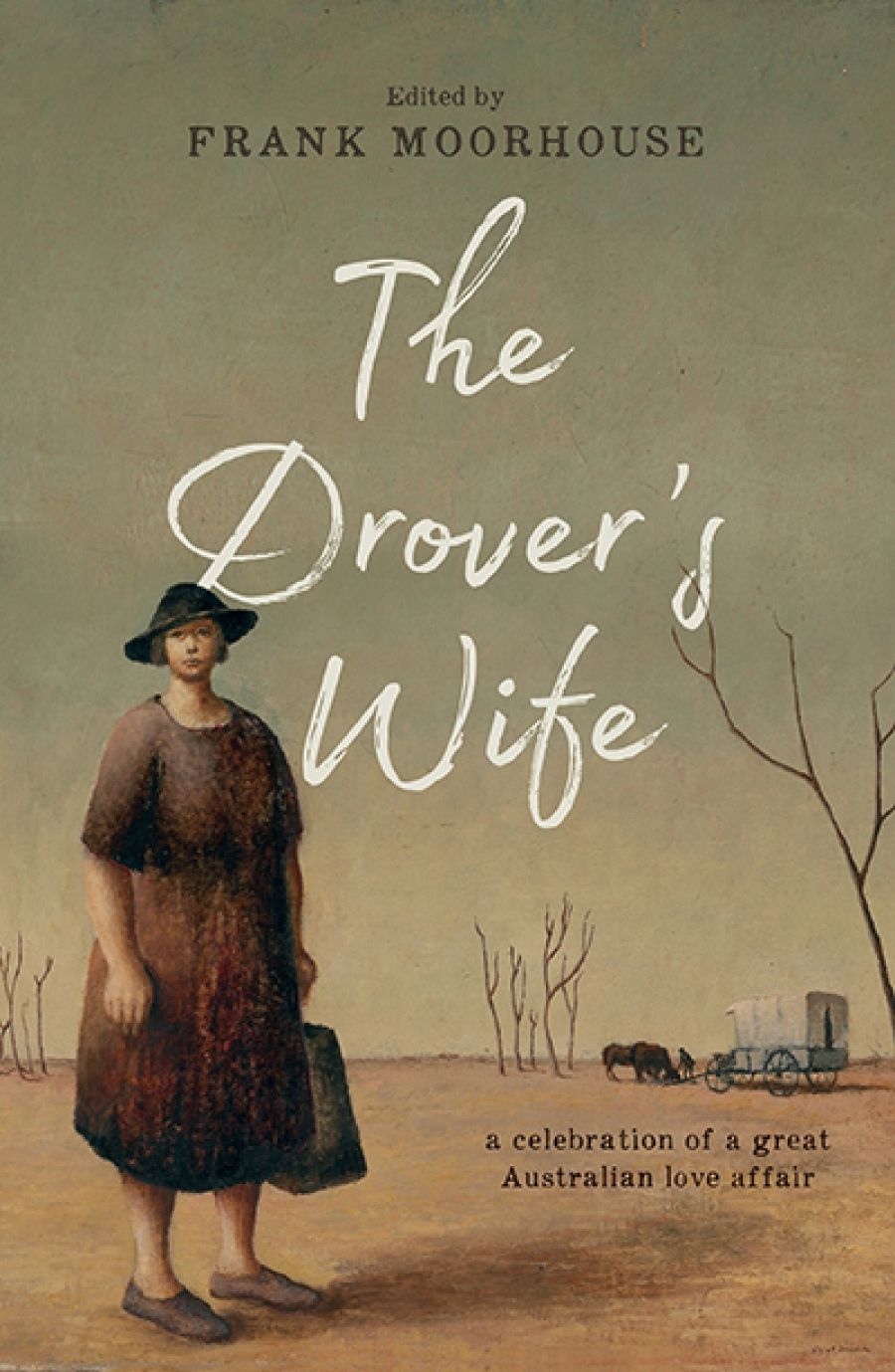
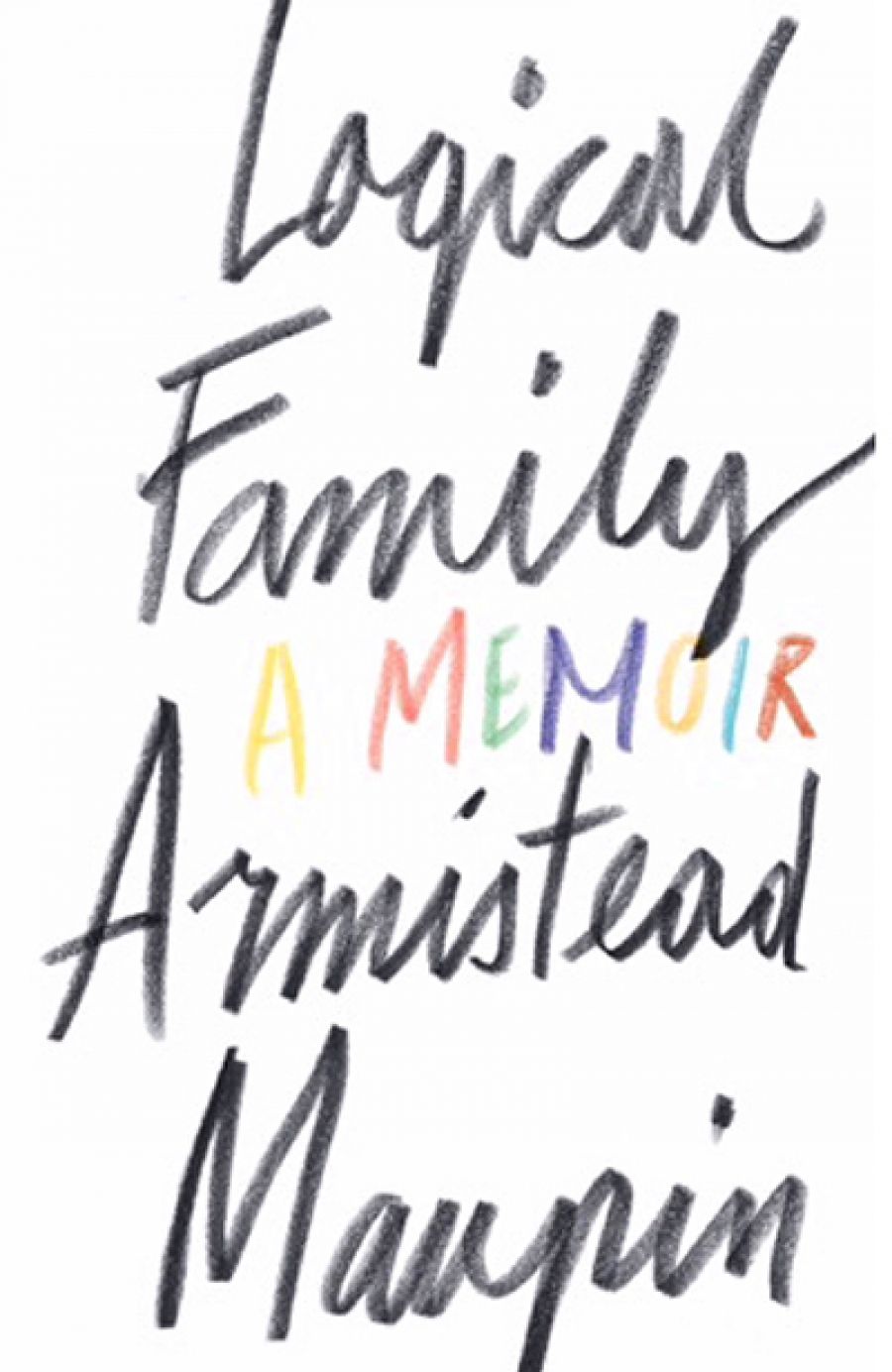
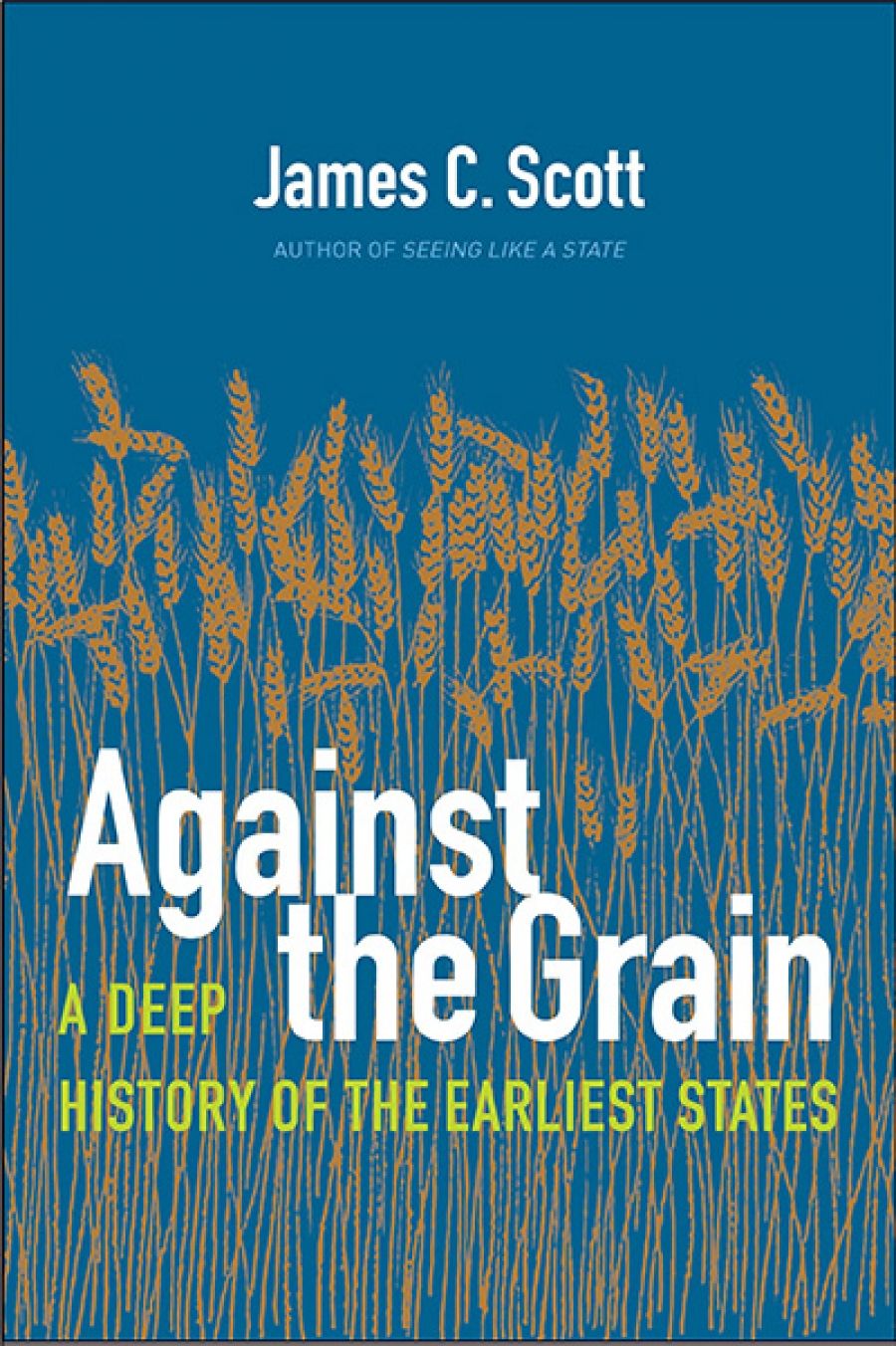
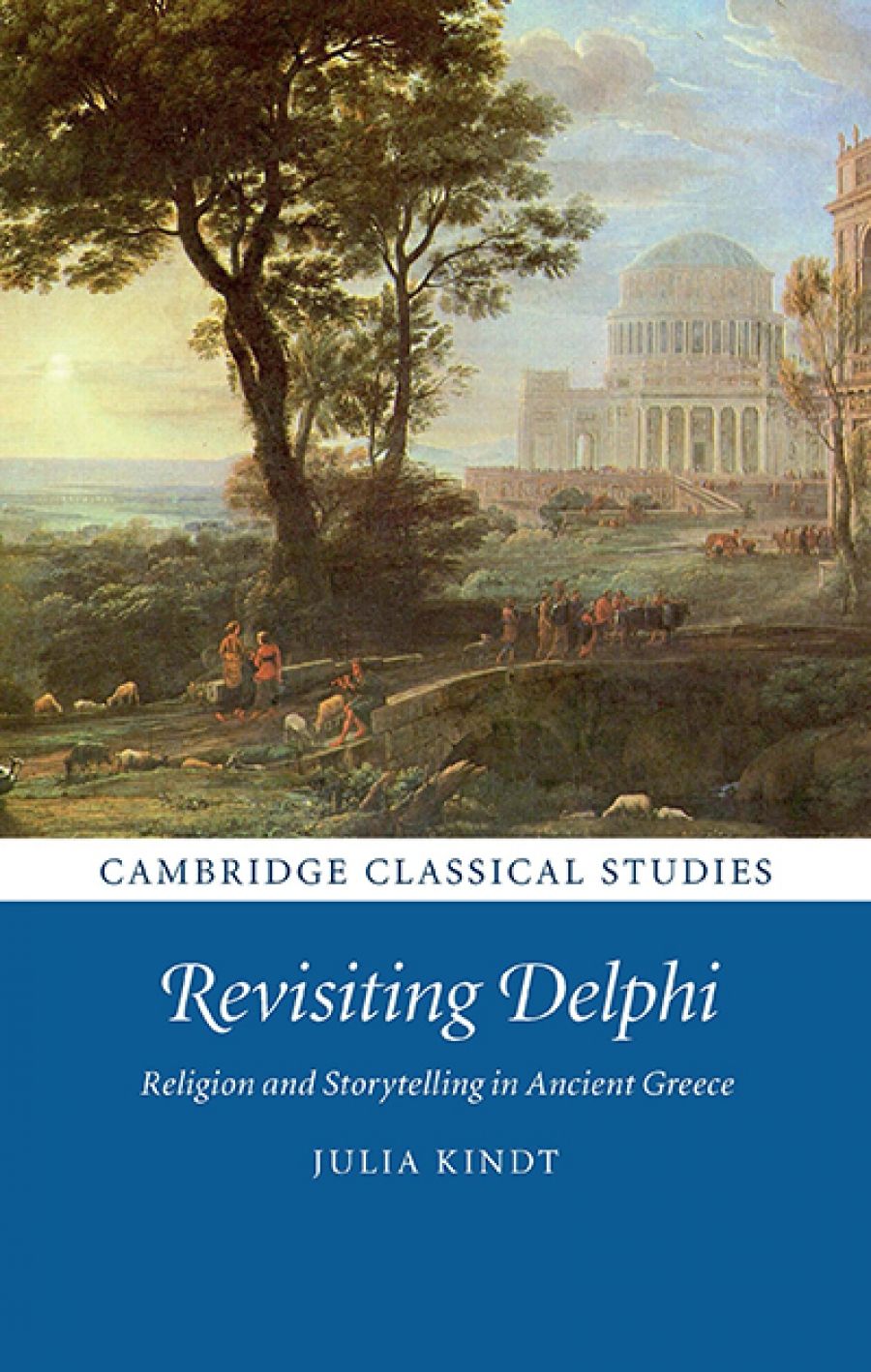
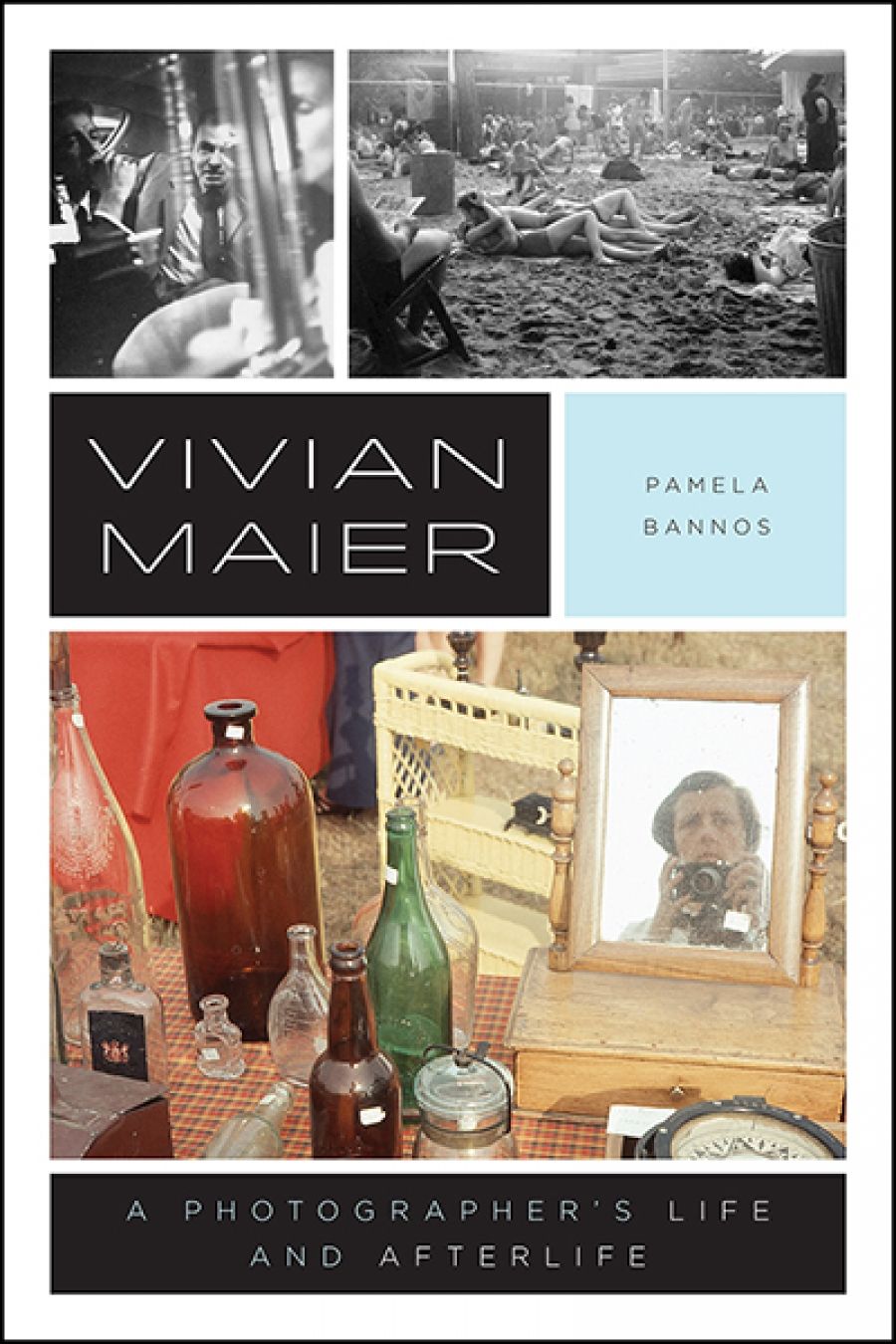
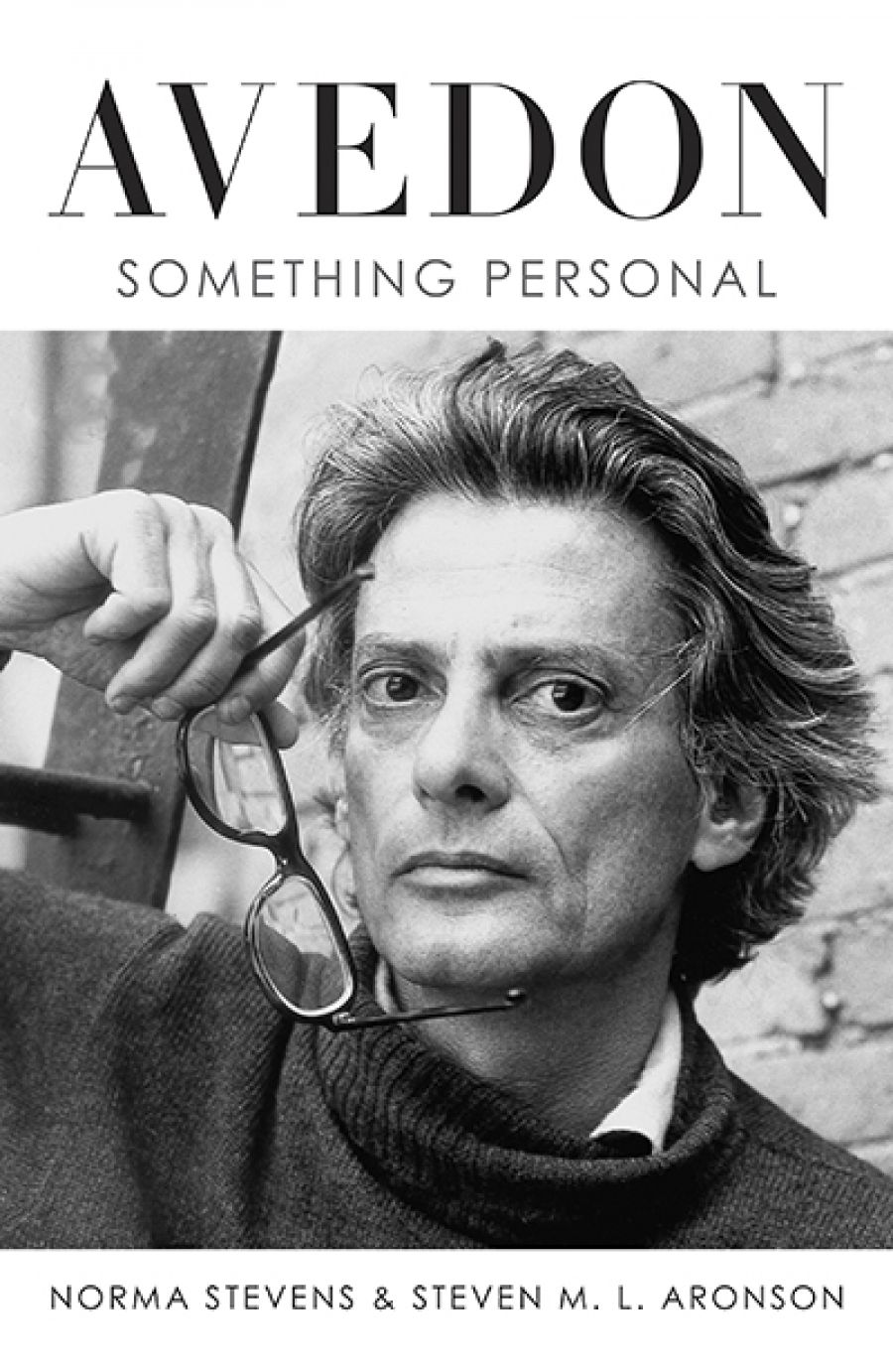
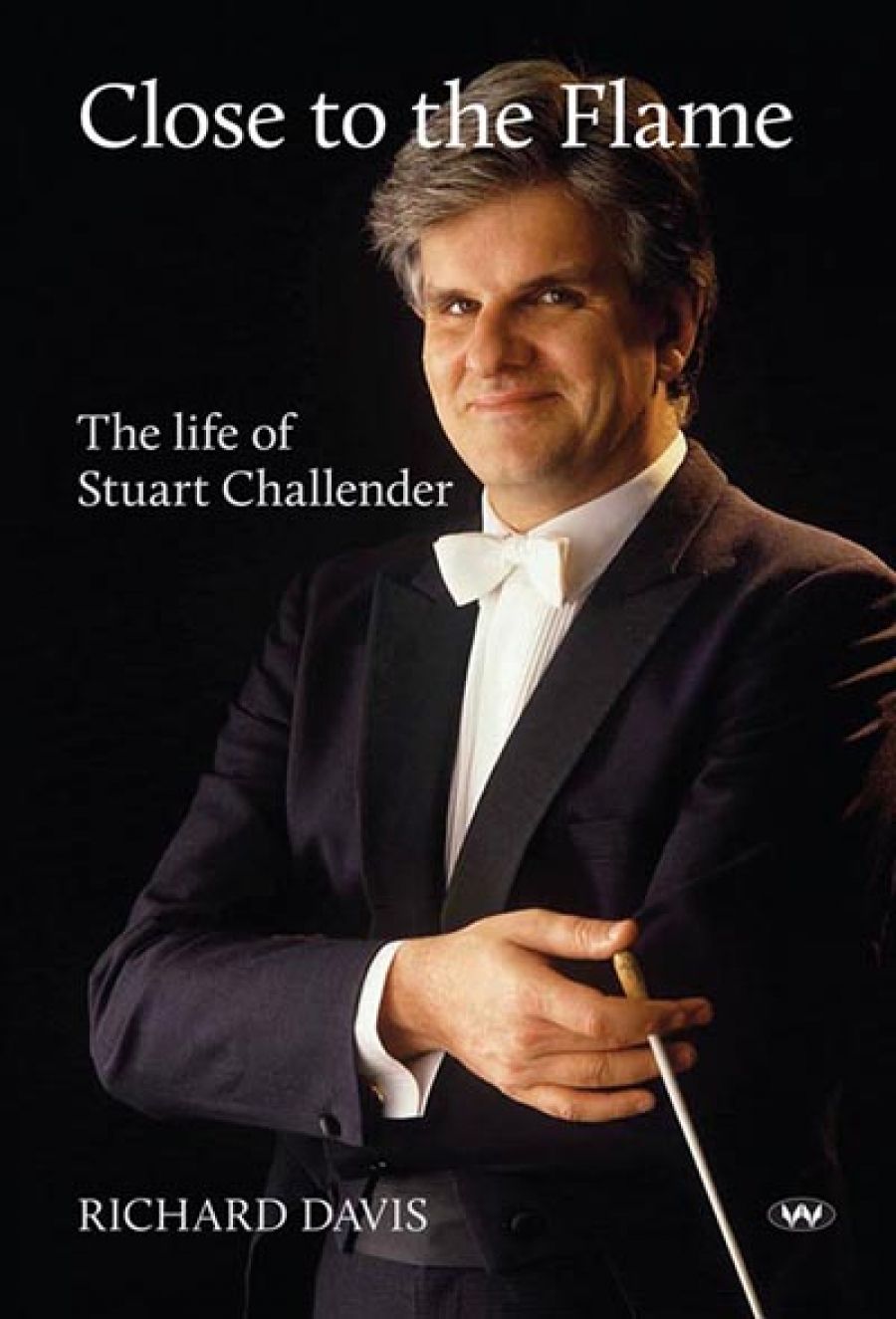

 My first job in publishing was a paid editorial internship with legal house CCH in the early 1990s. It taught me a lot: not least the importance of being meticulous (and earnest). However, the glitz and glamour of trade publishing caught my eye and I soon jumped ship, spending twelve or so years at HarperCollins, Hardie Grant, and Pan Macmillan before co-founding Brio in 2011.
My first job in publishing was a paid editorial internship with legal house CCH in the early 1990s. It taught me a lot: not least the importance of being meticulous (and earnest). However, the glitz and glamour of trade publishing caught my eye and I soon jumped ship, spending twelve or so years at HarperCollins, Hardie Grant, and Pan Macmillan before co-founding Brio in 2011.